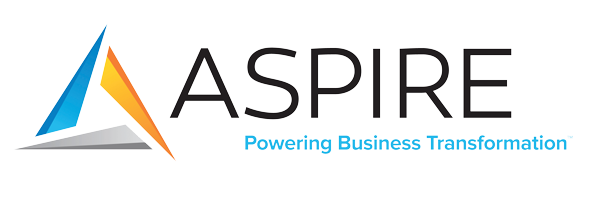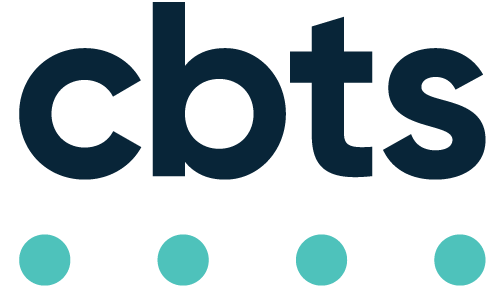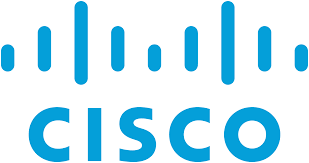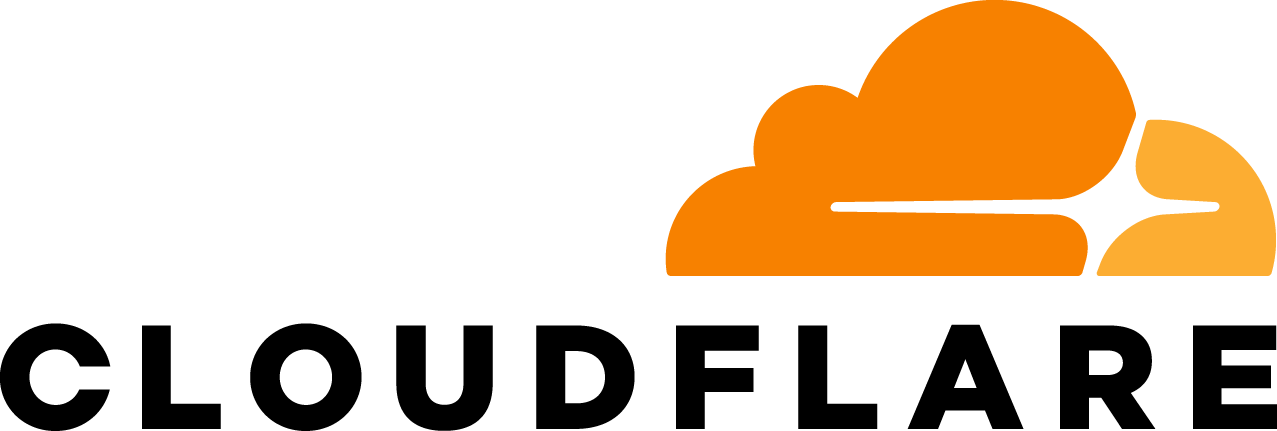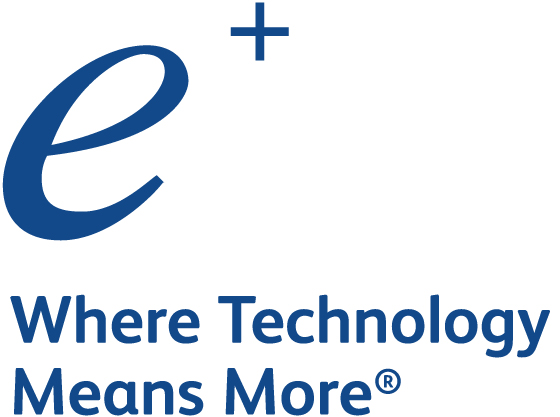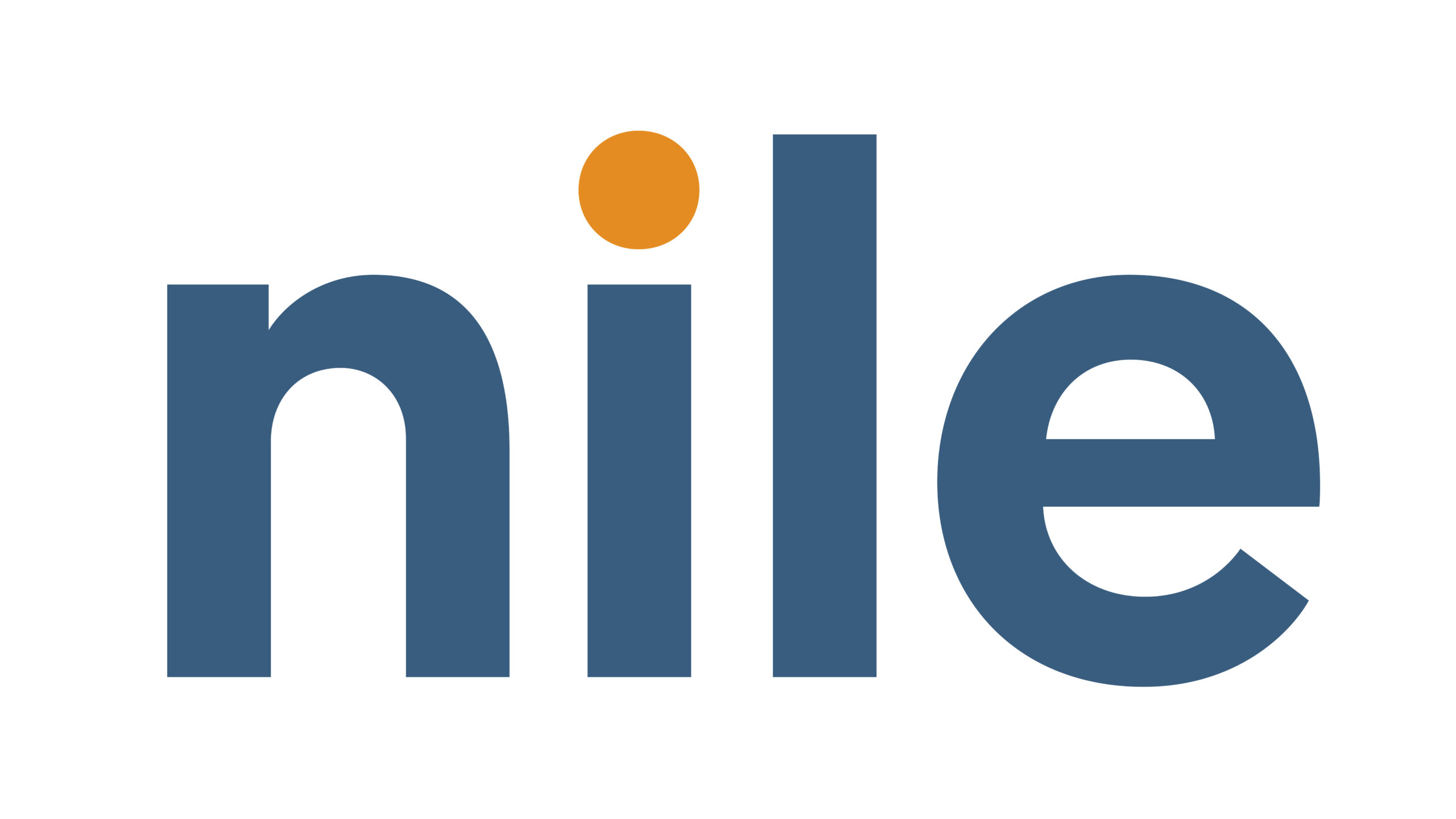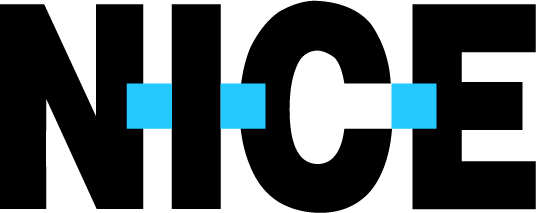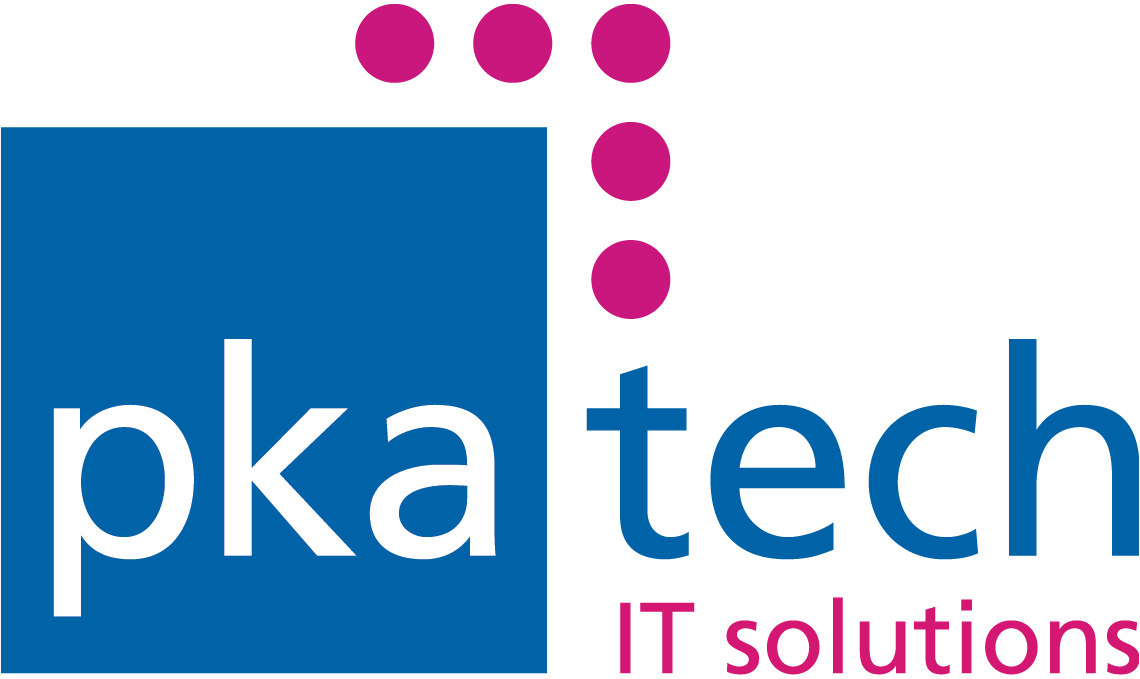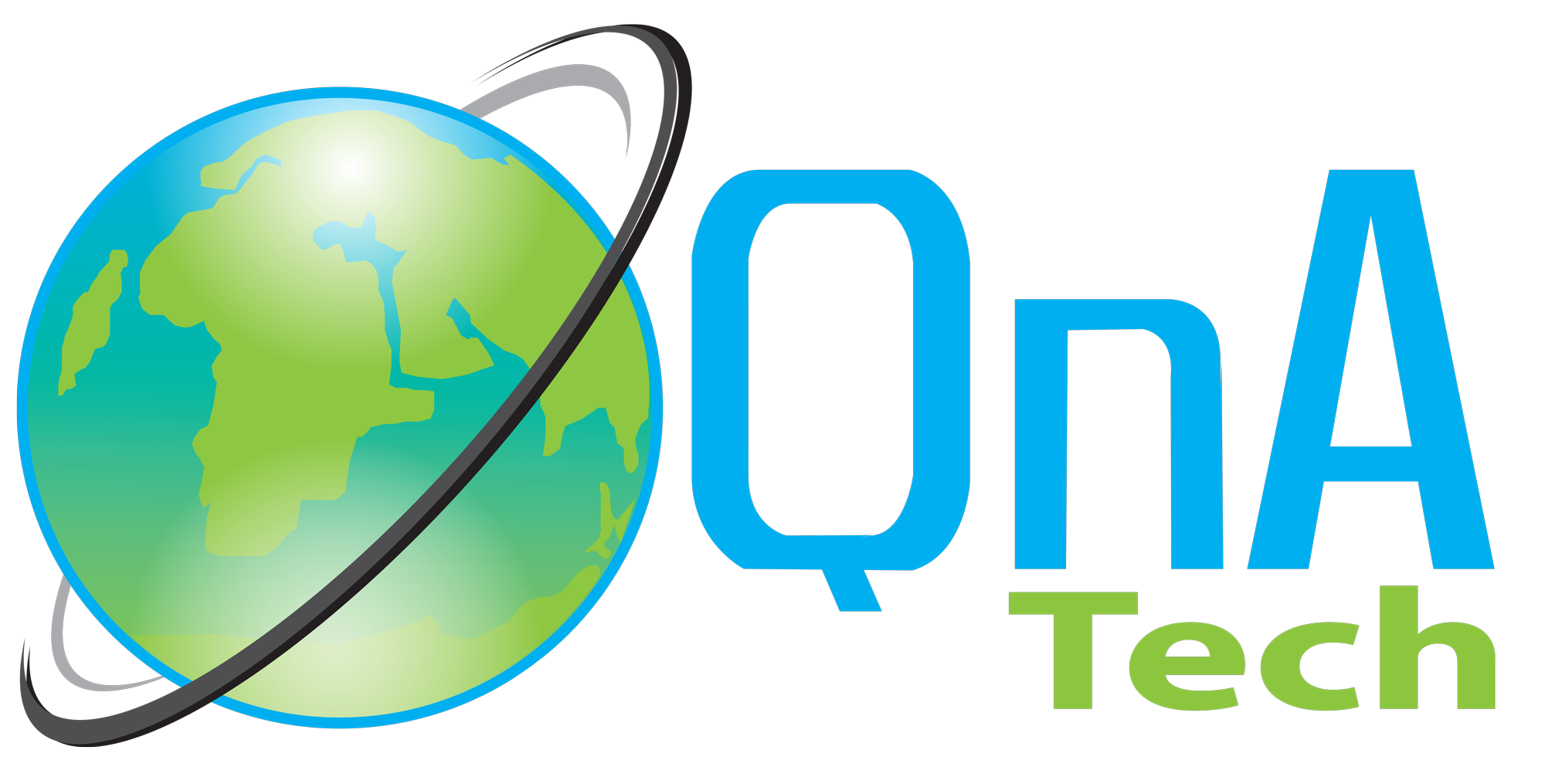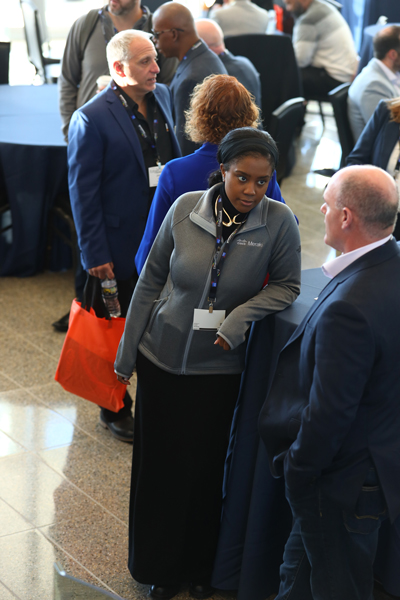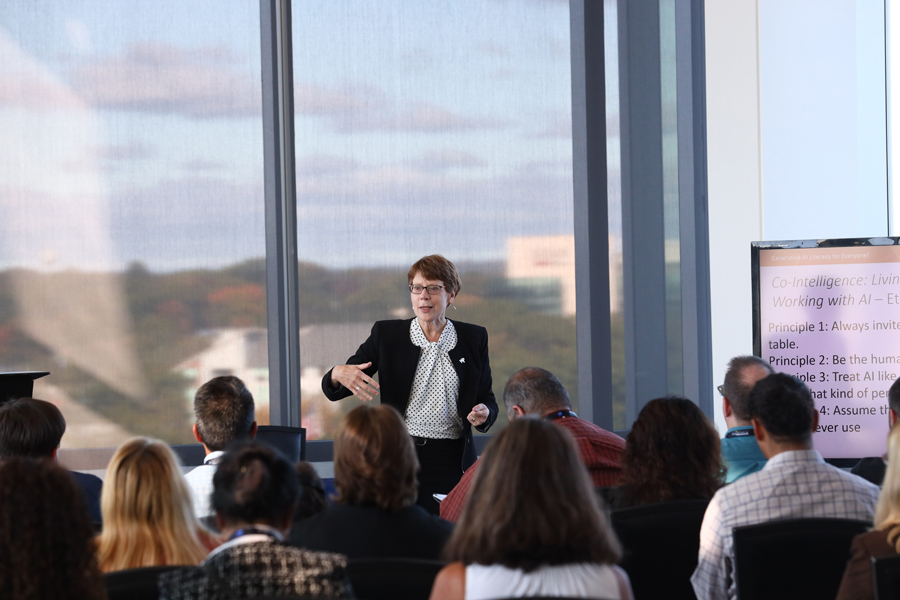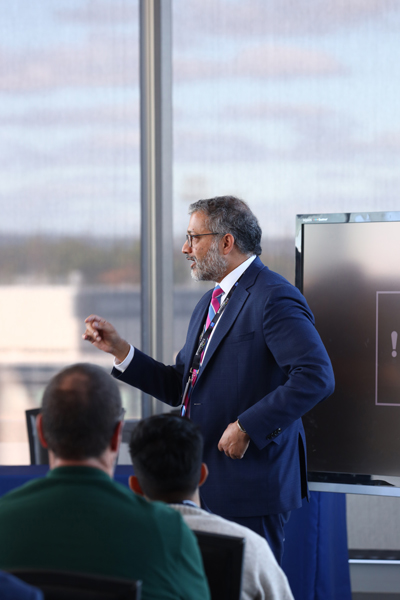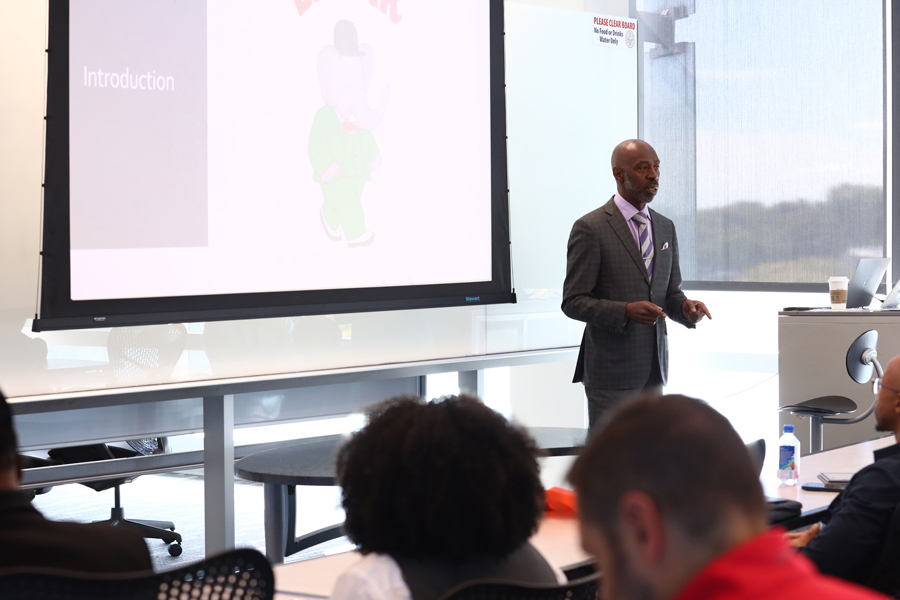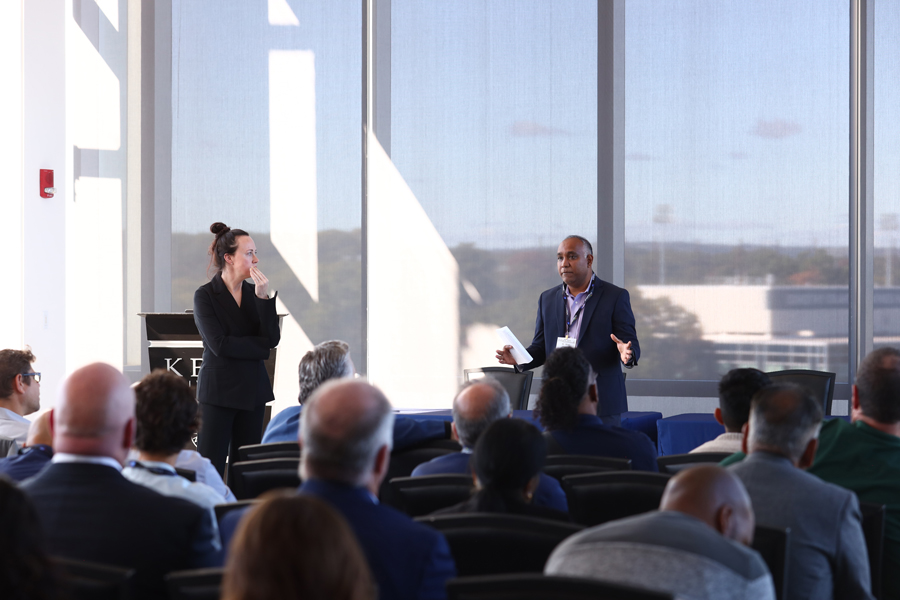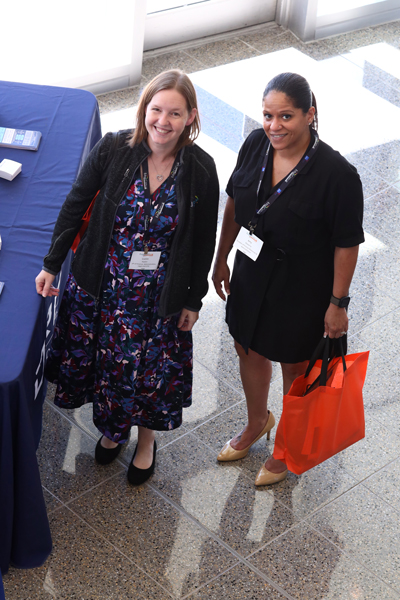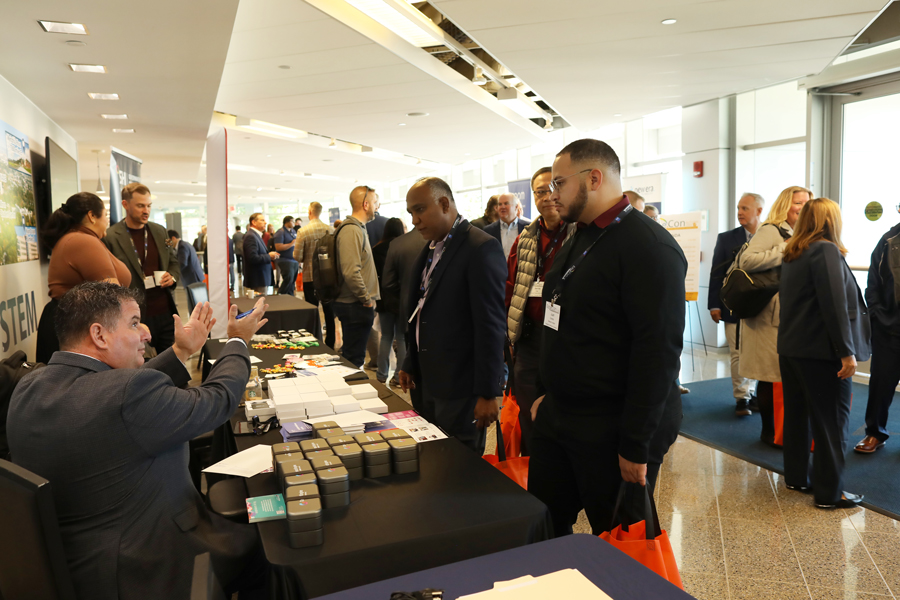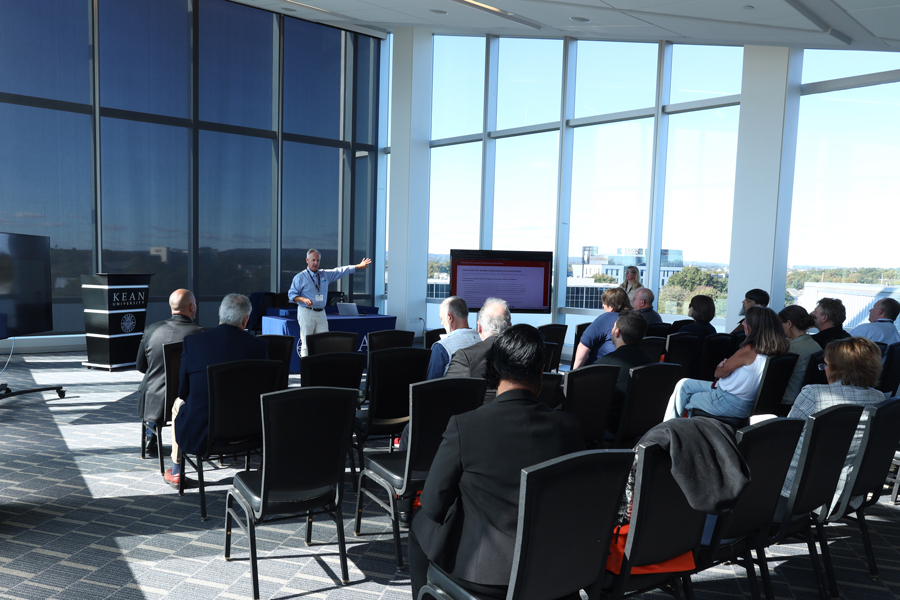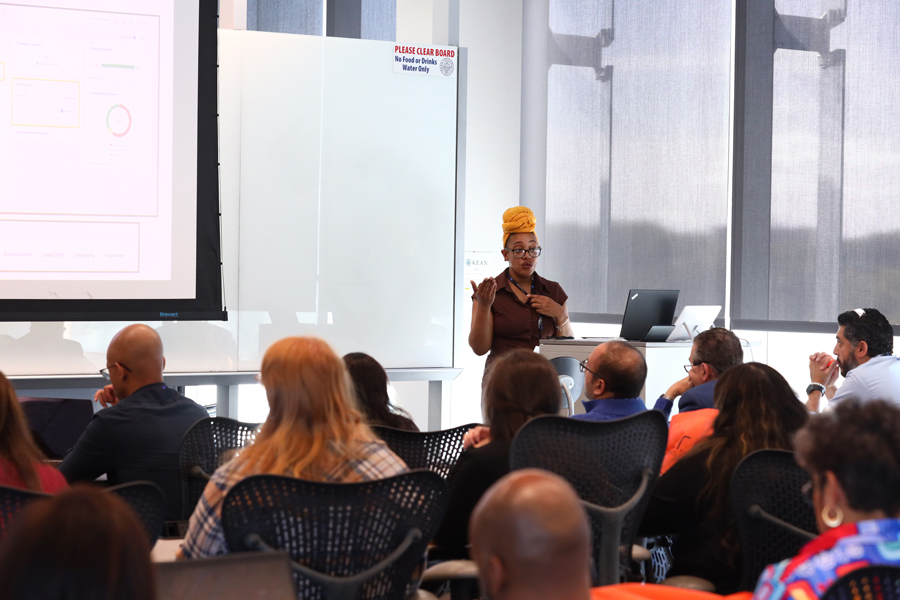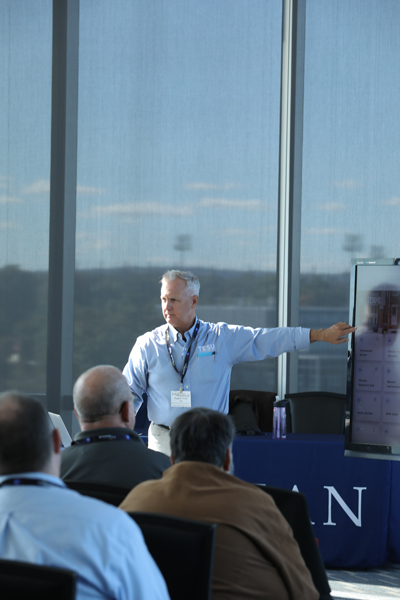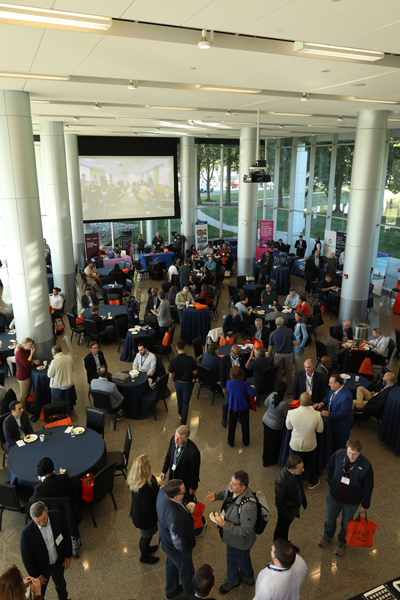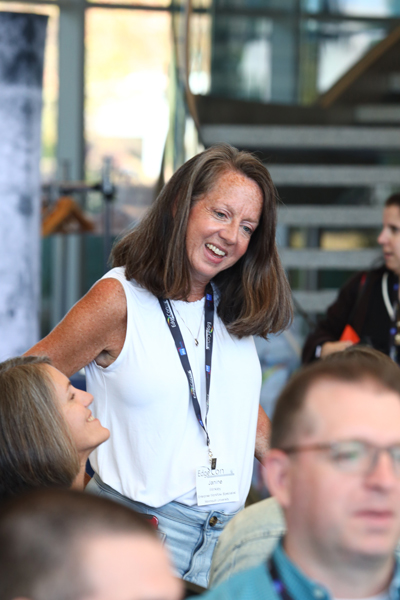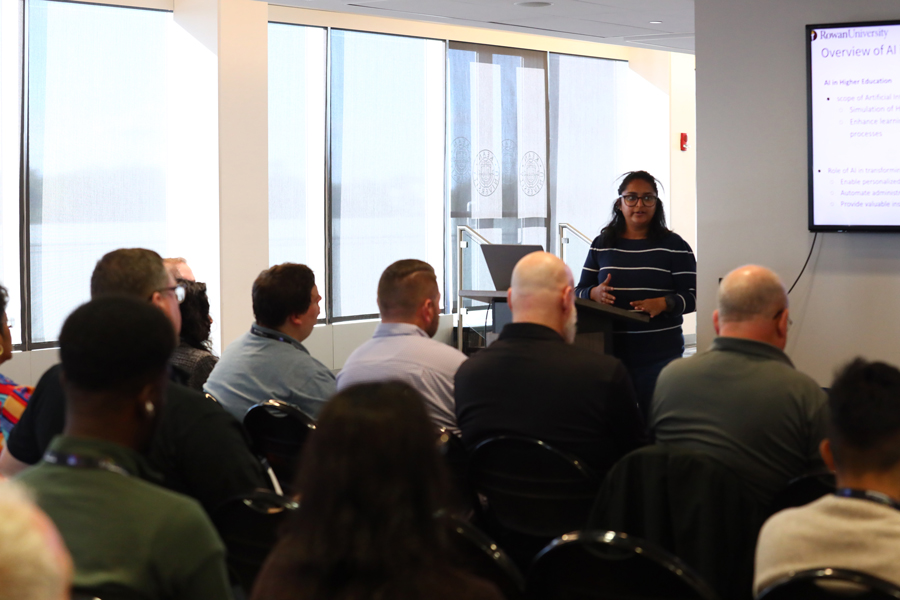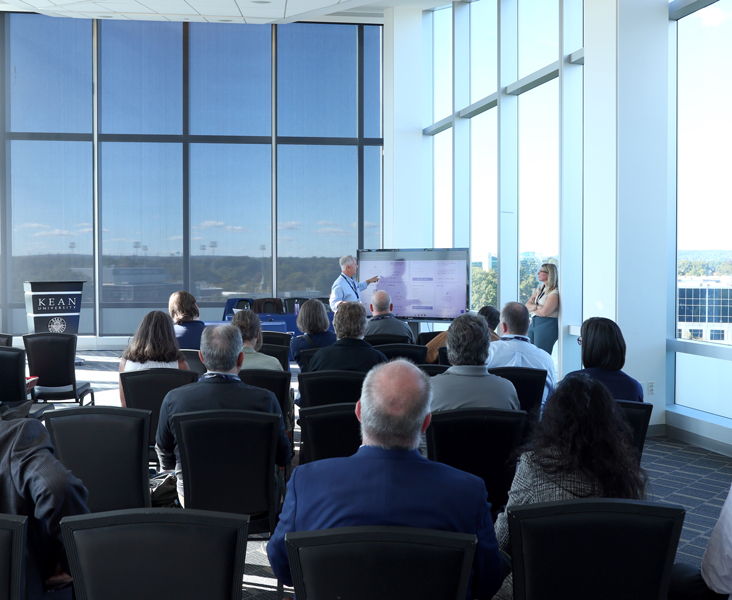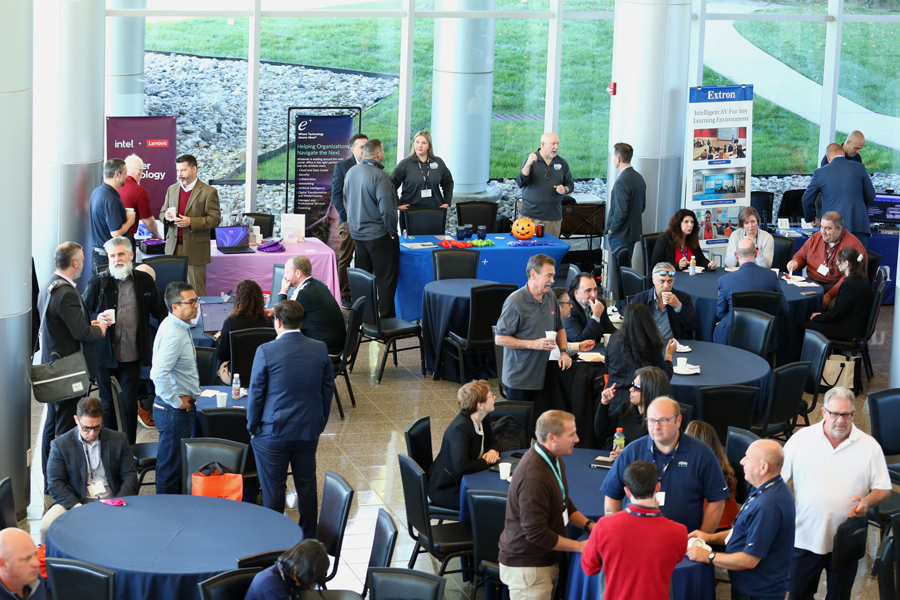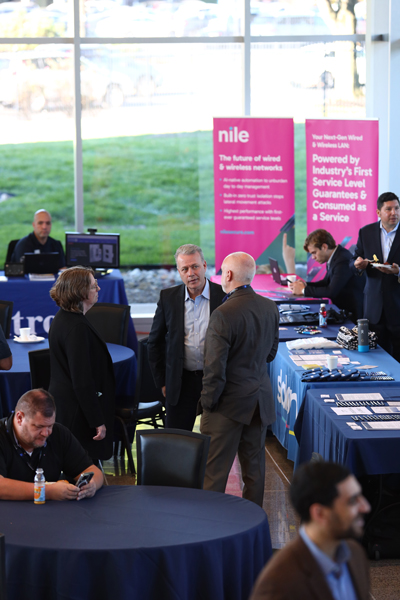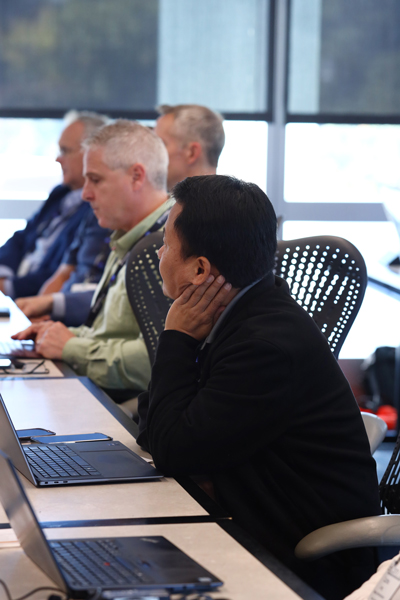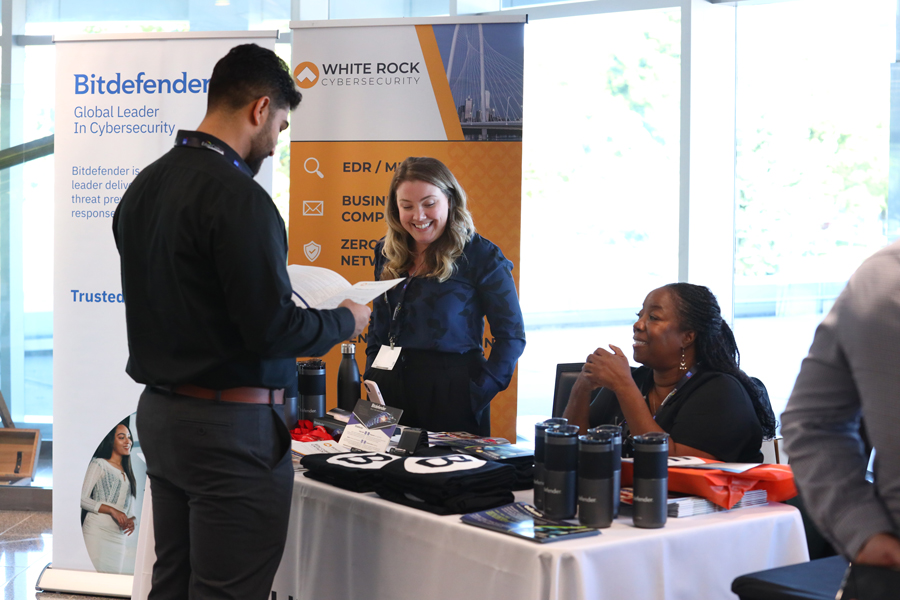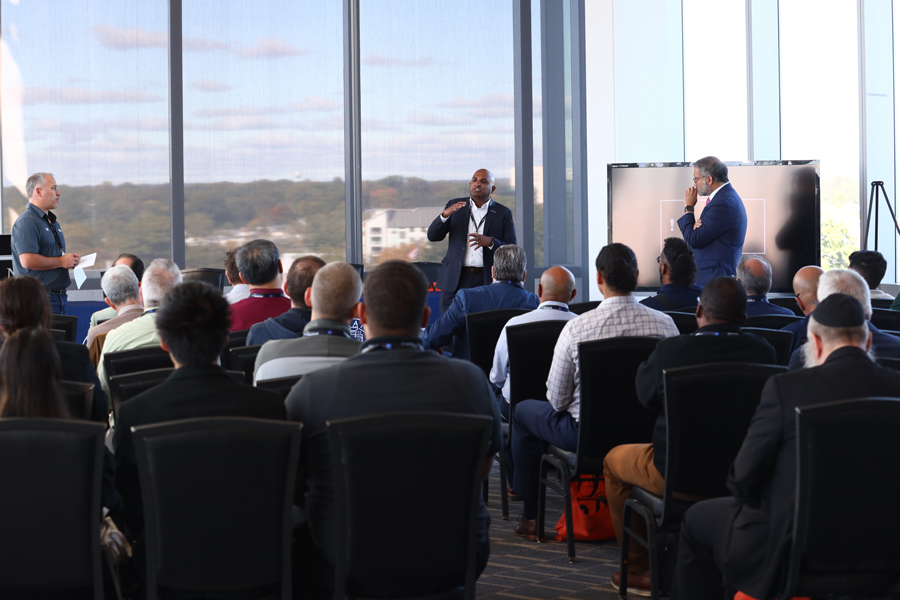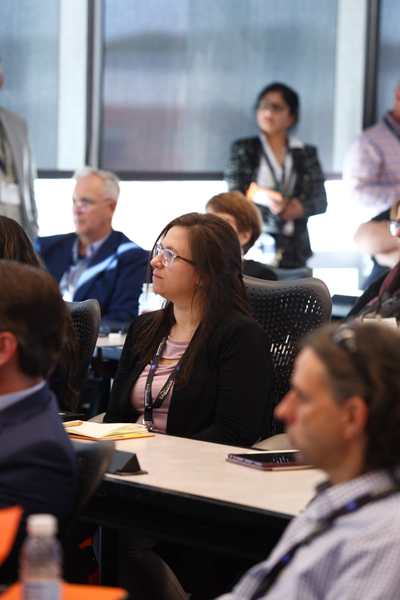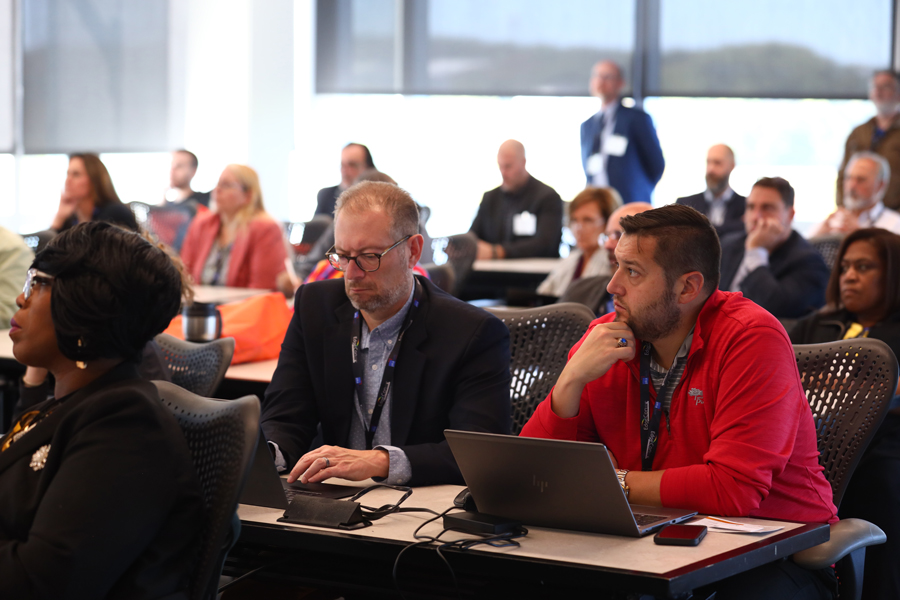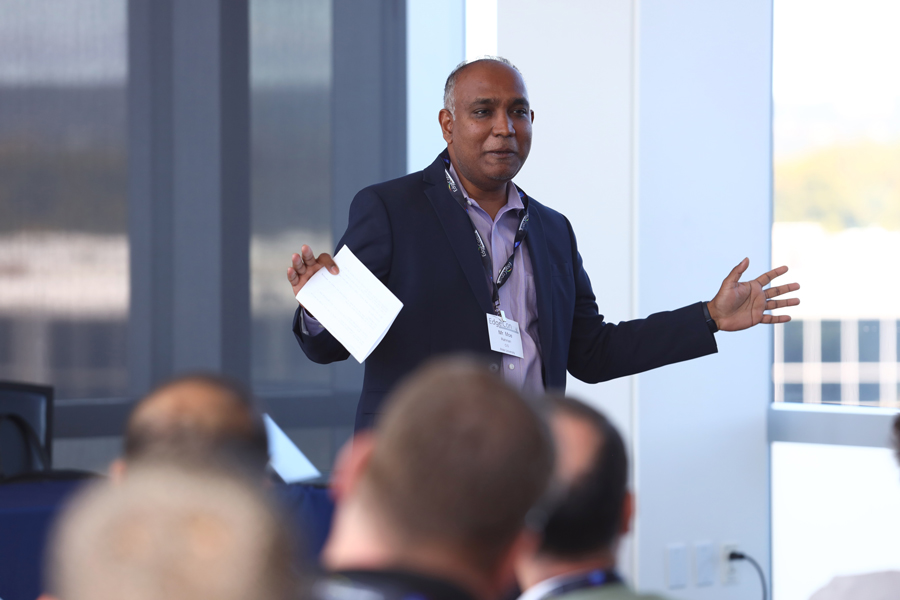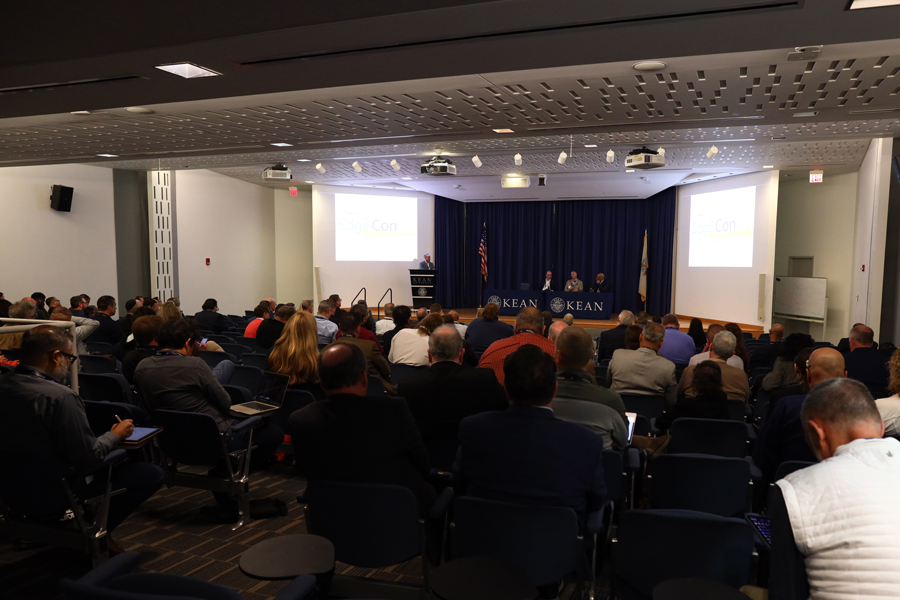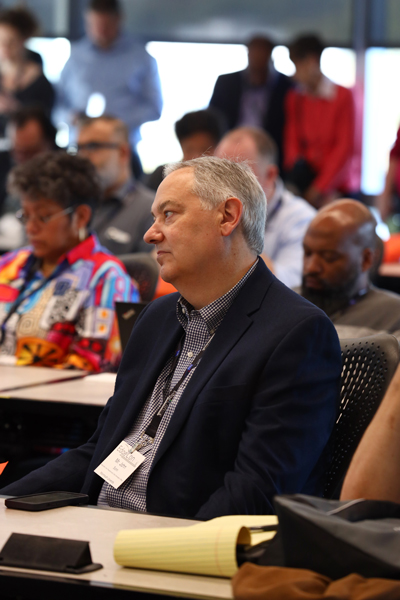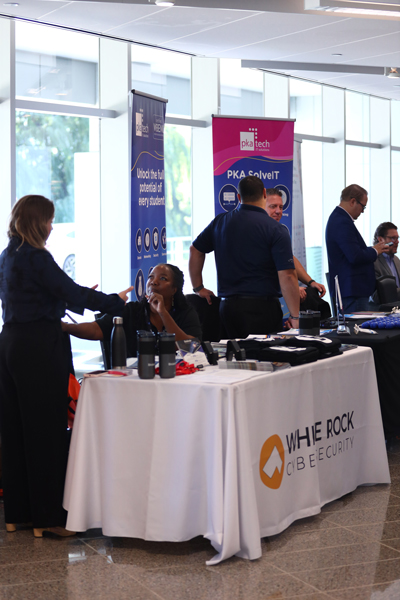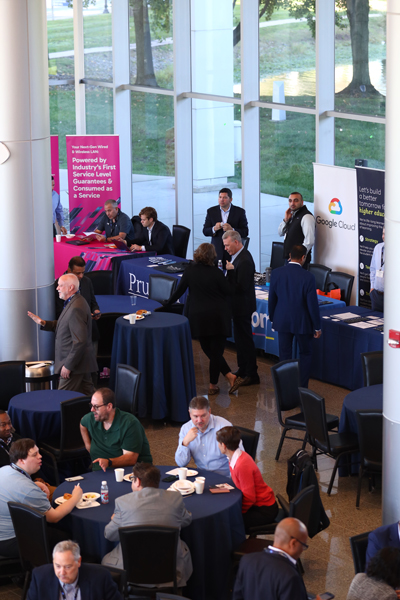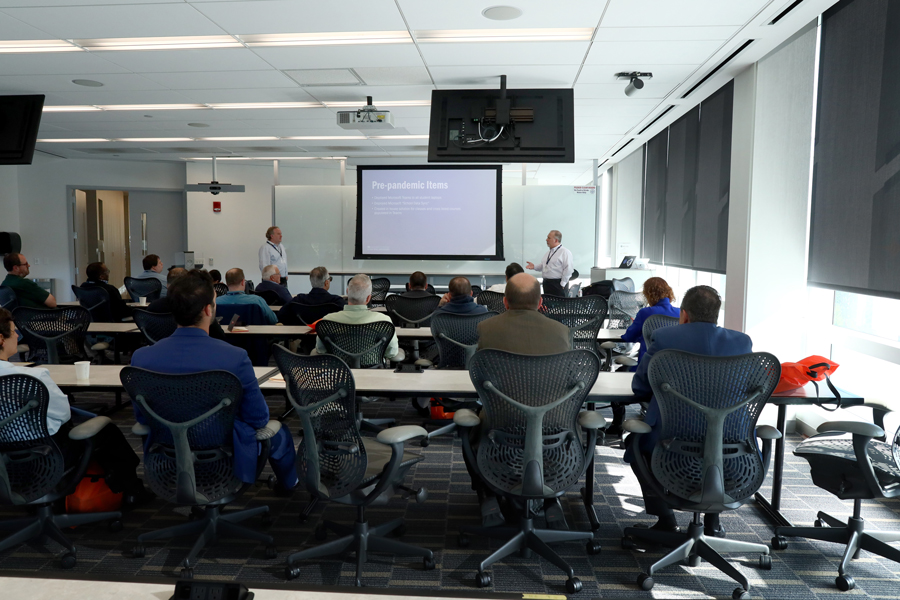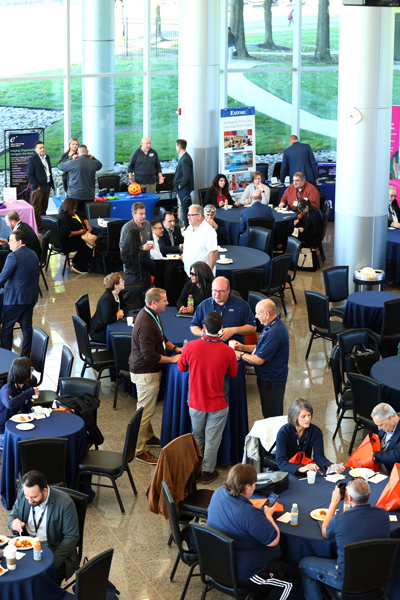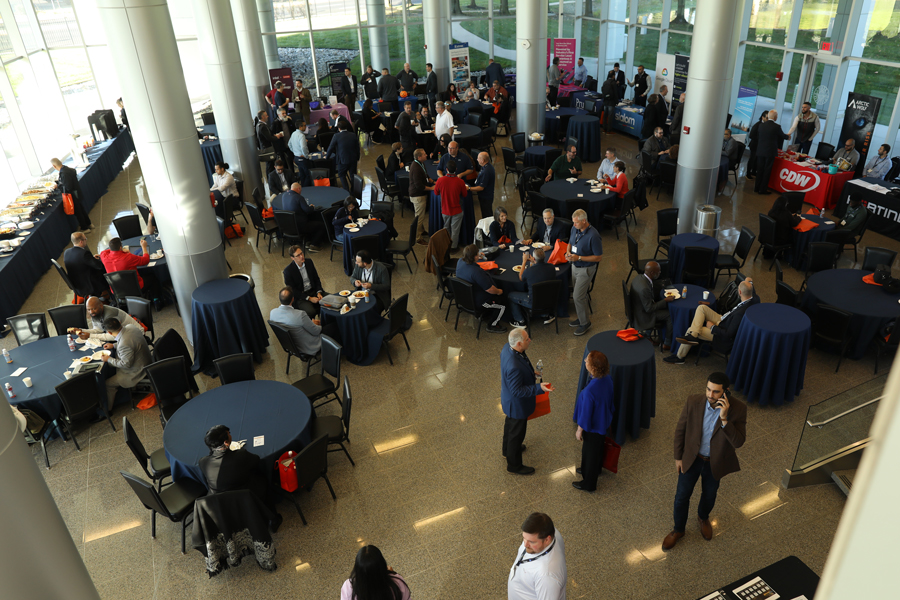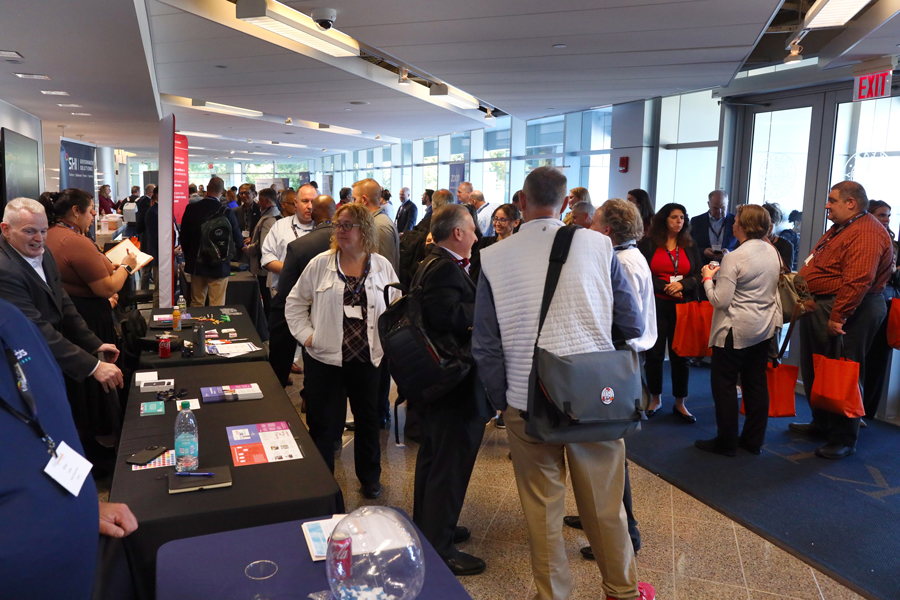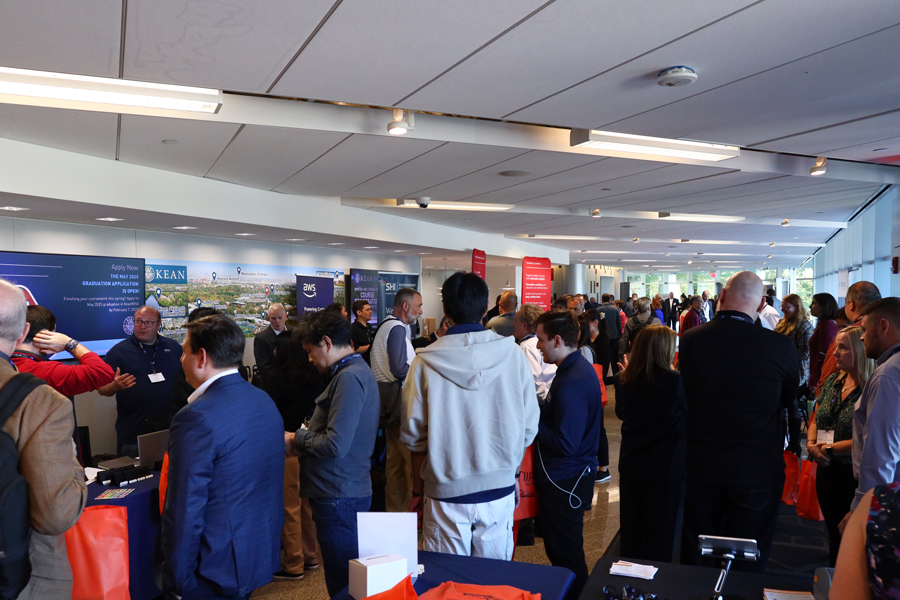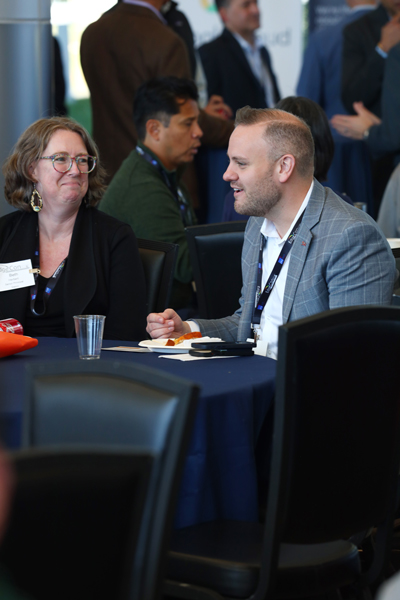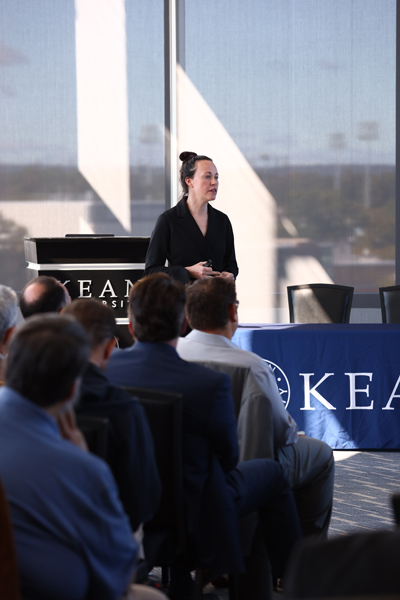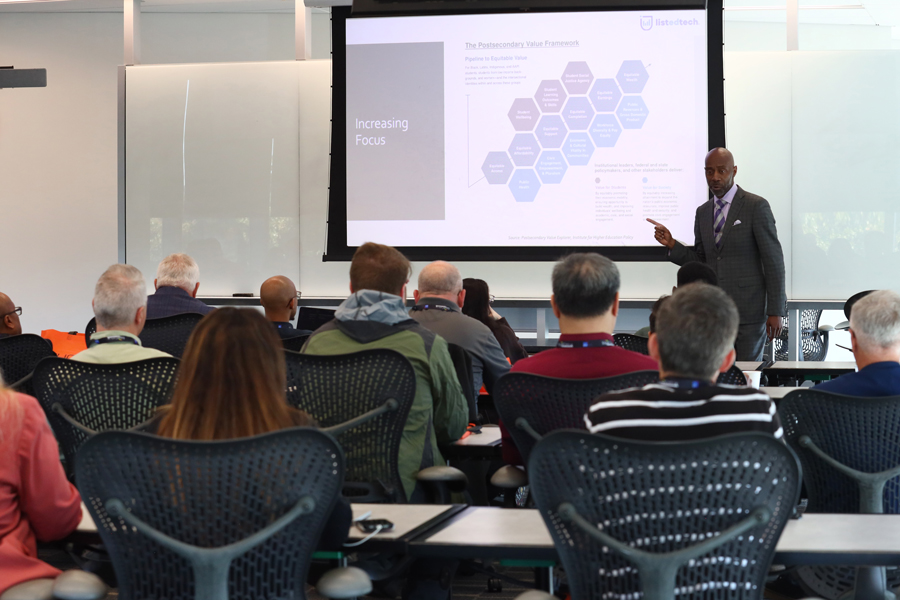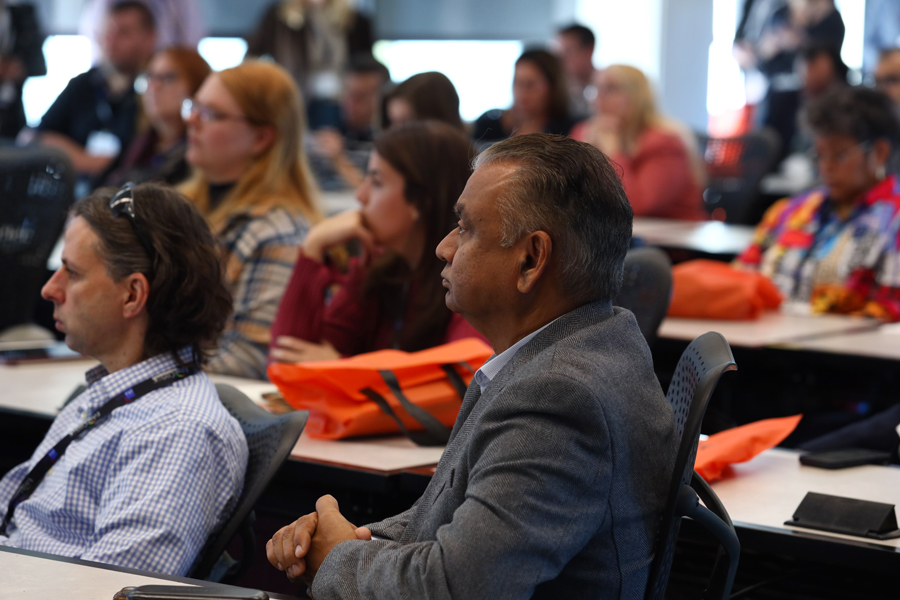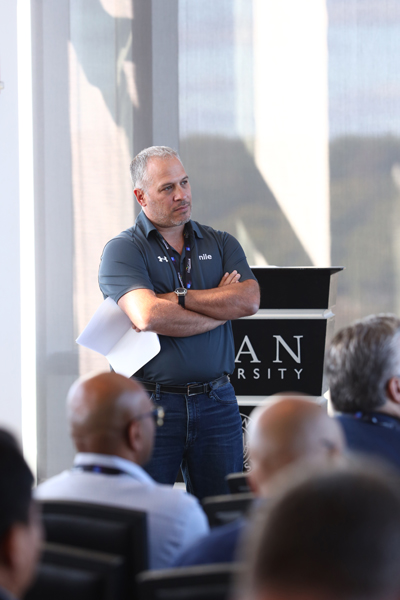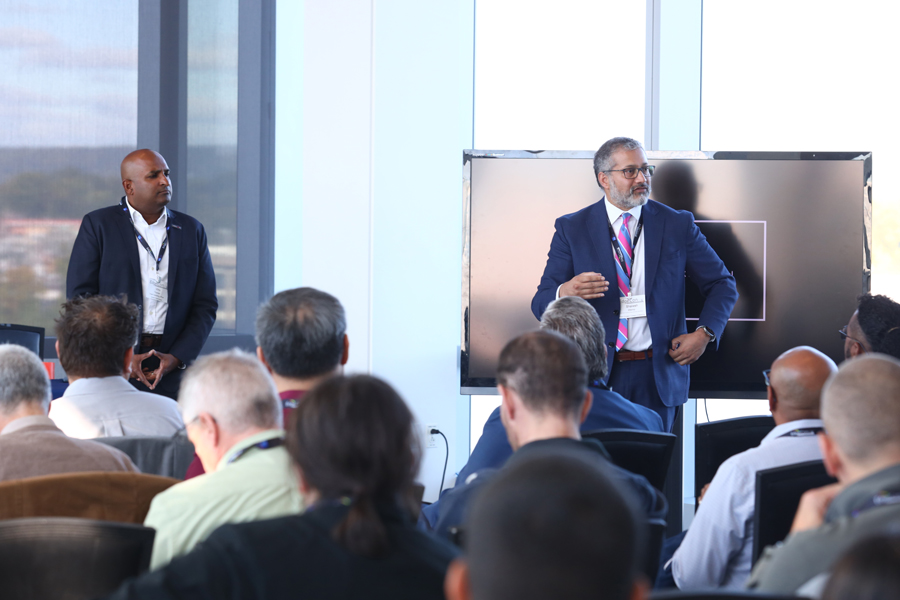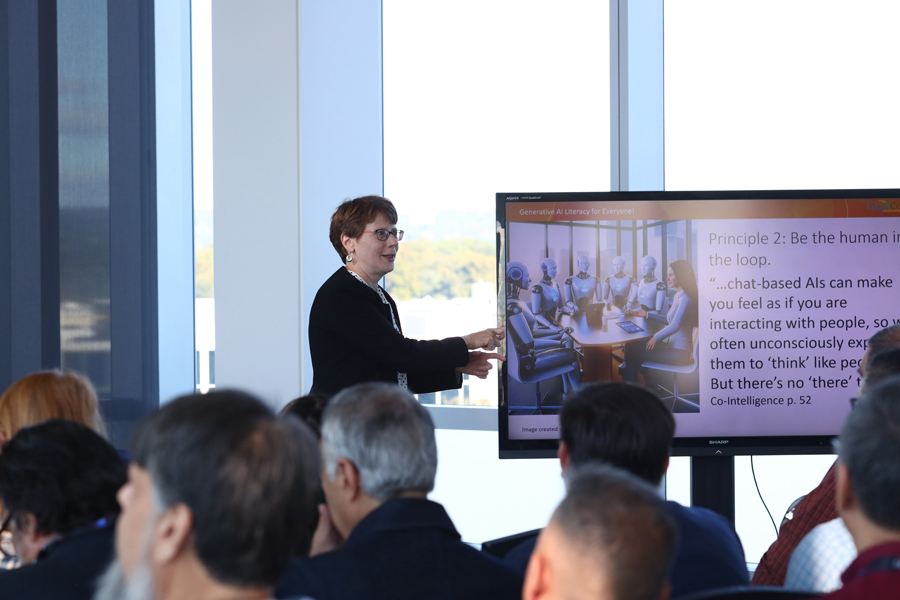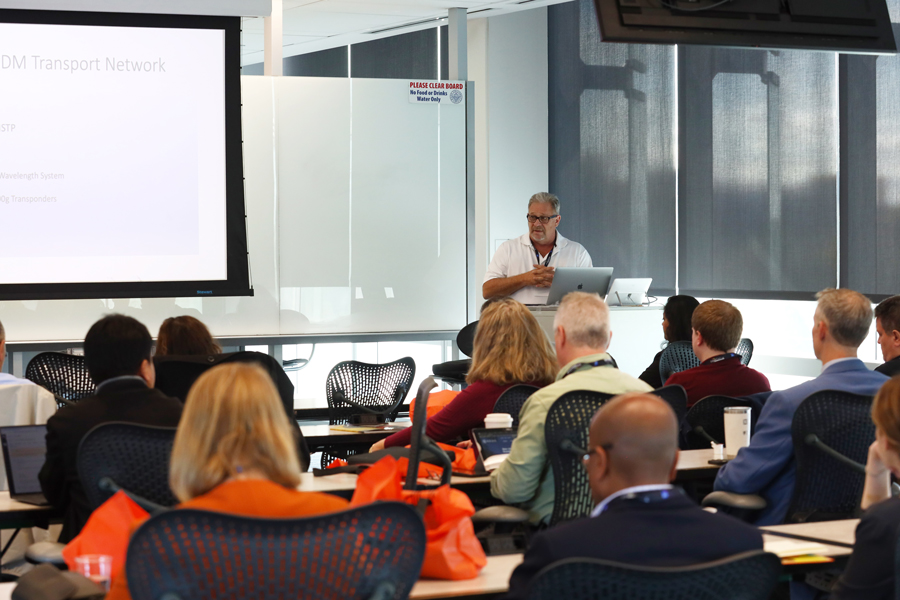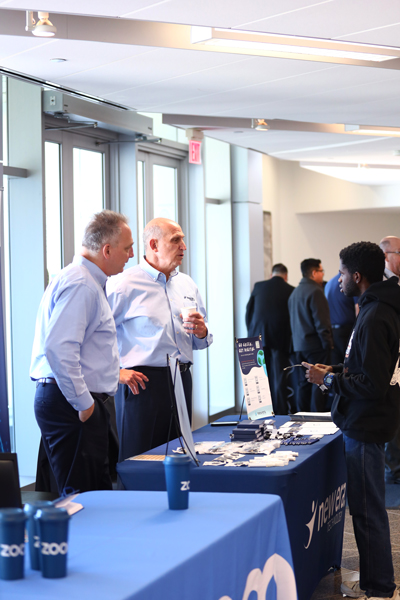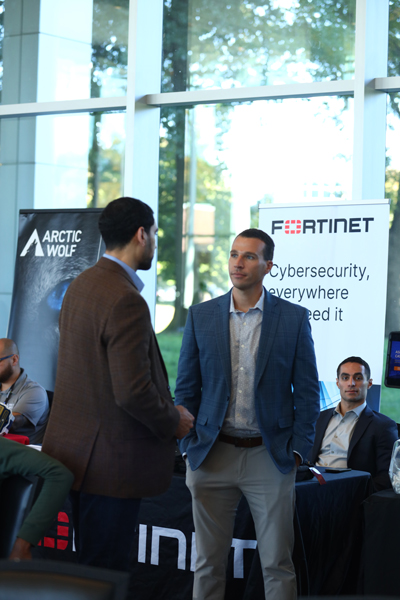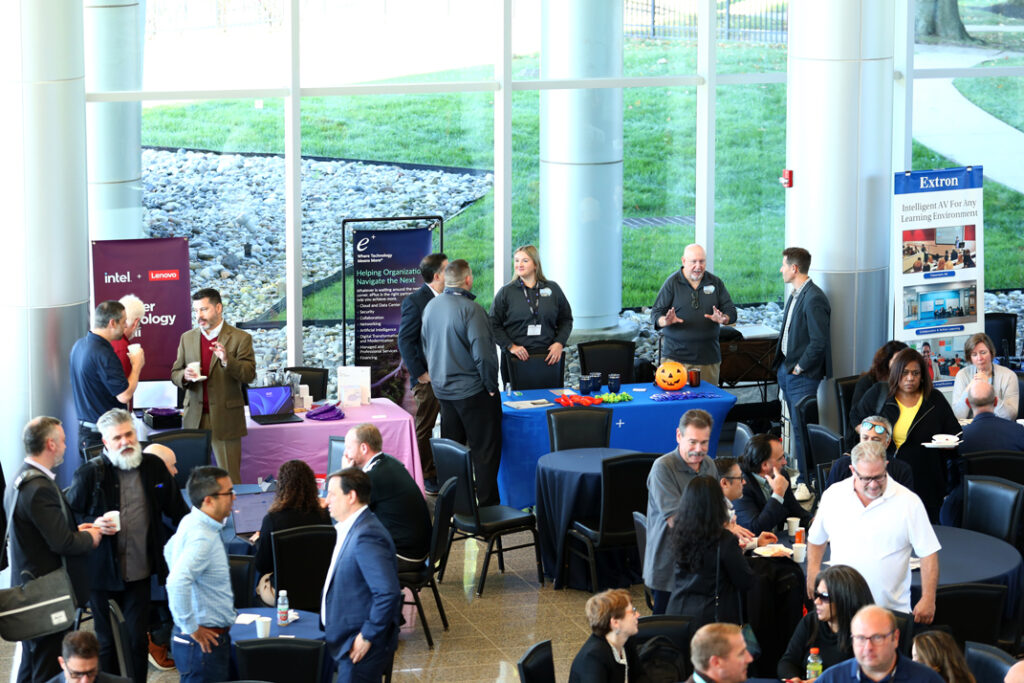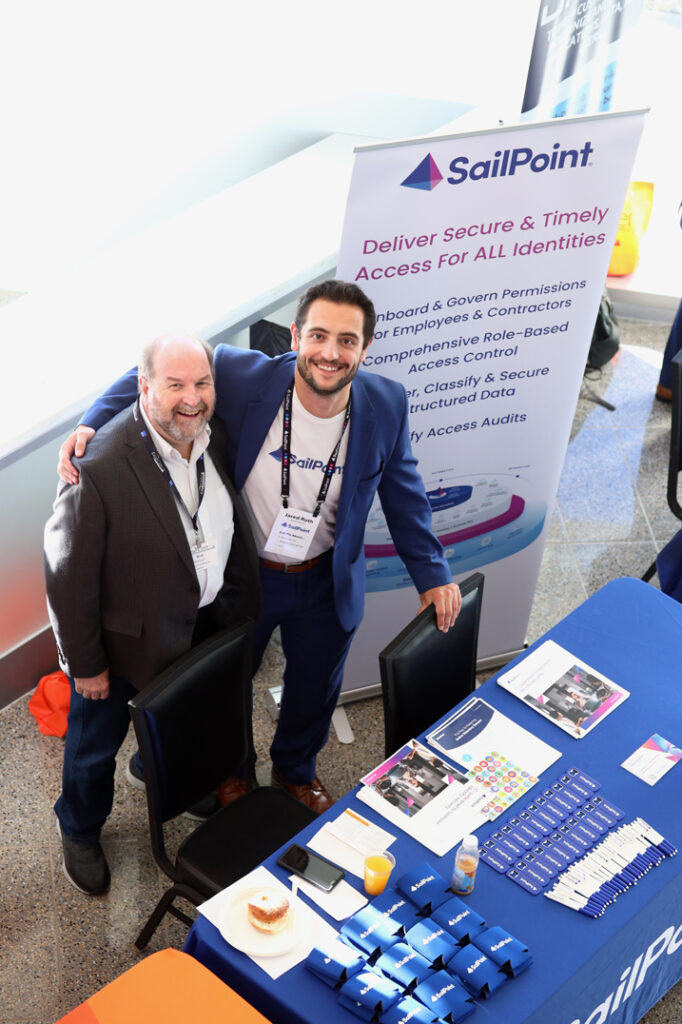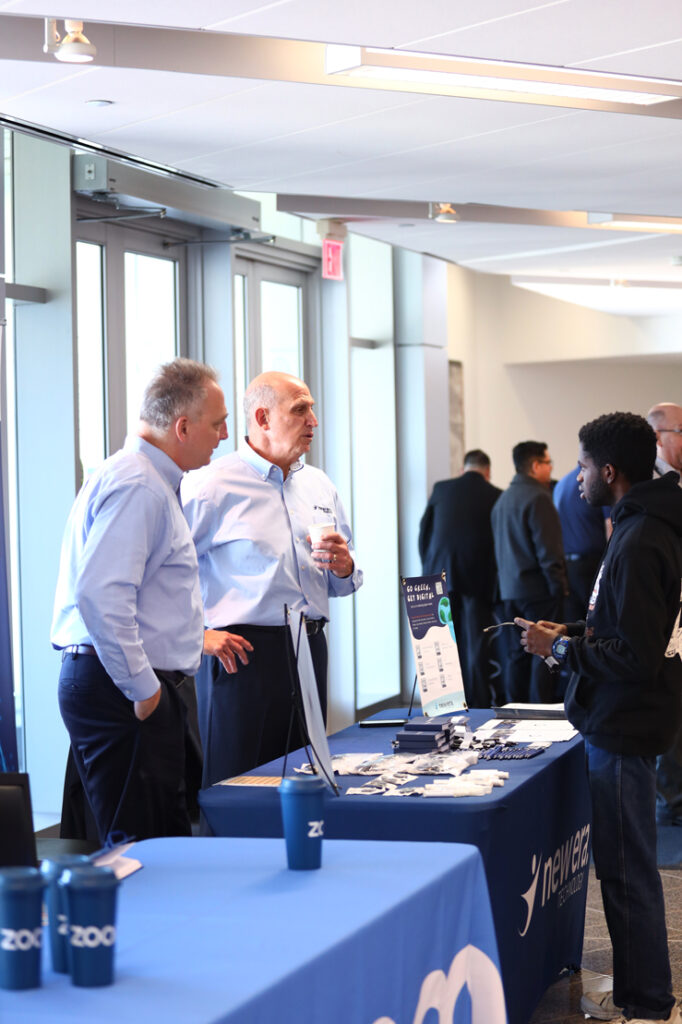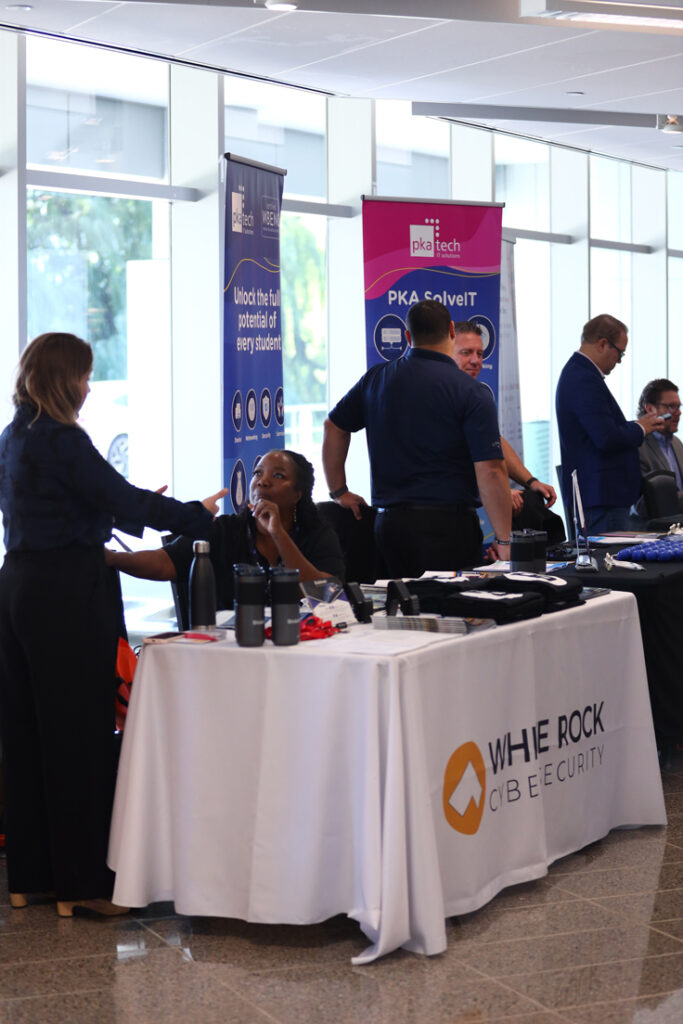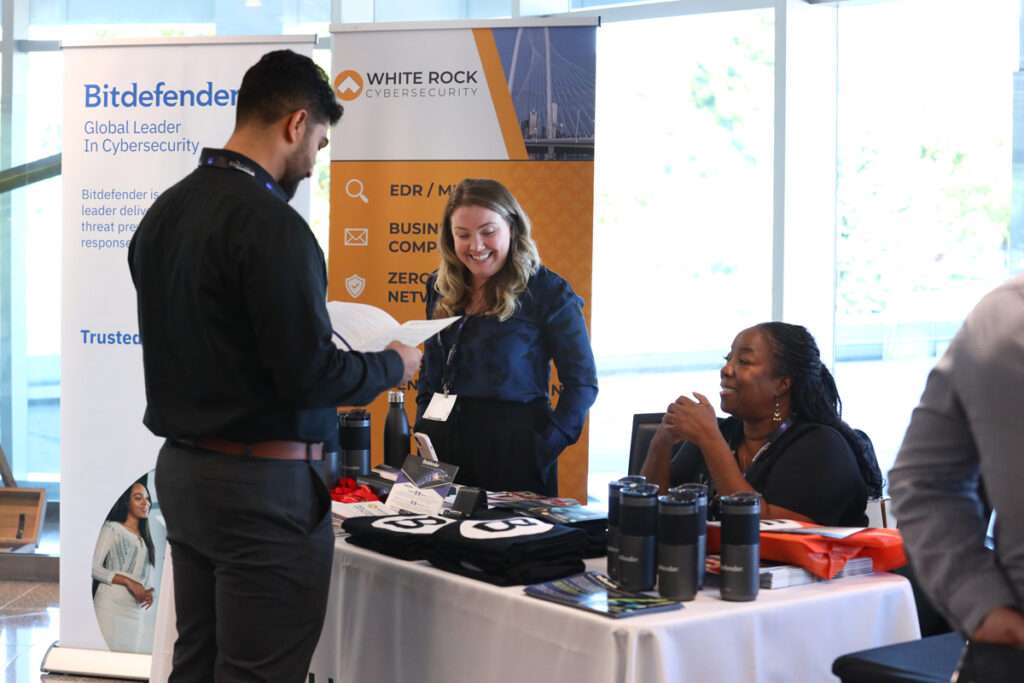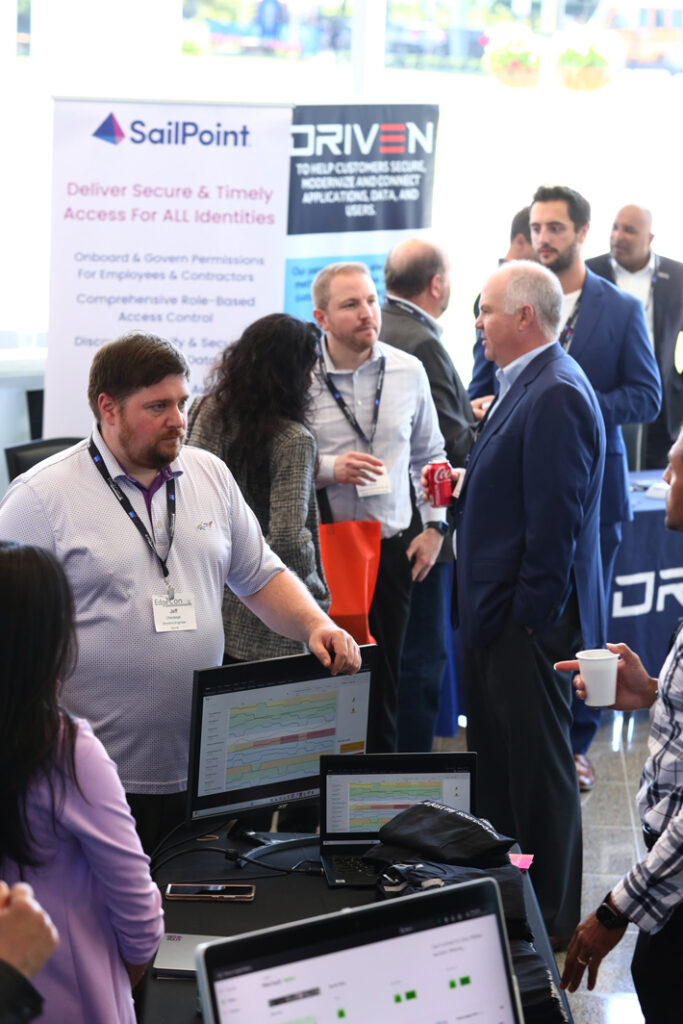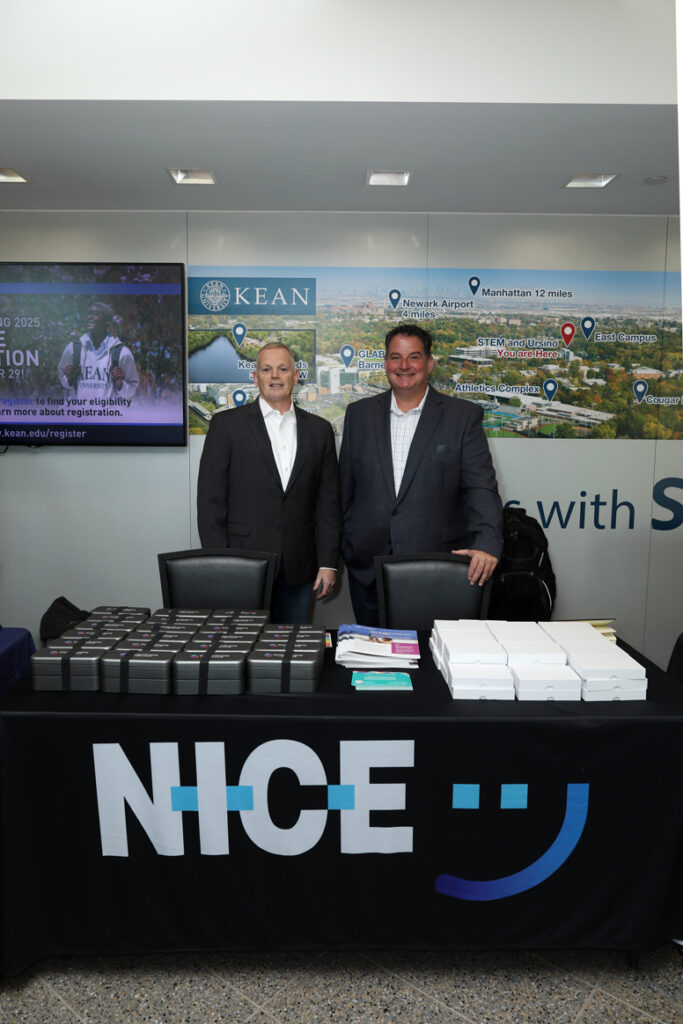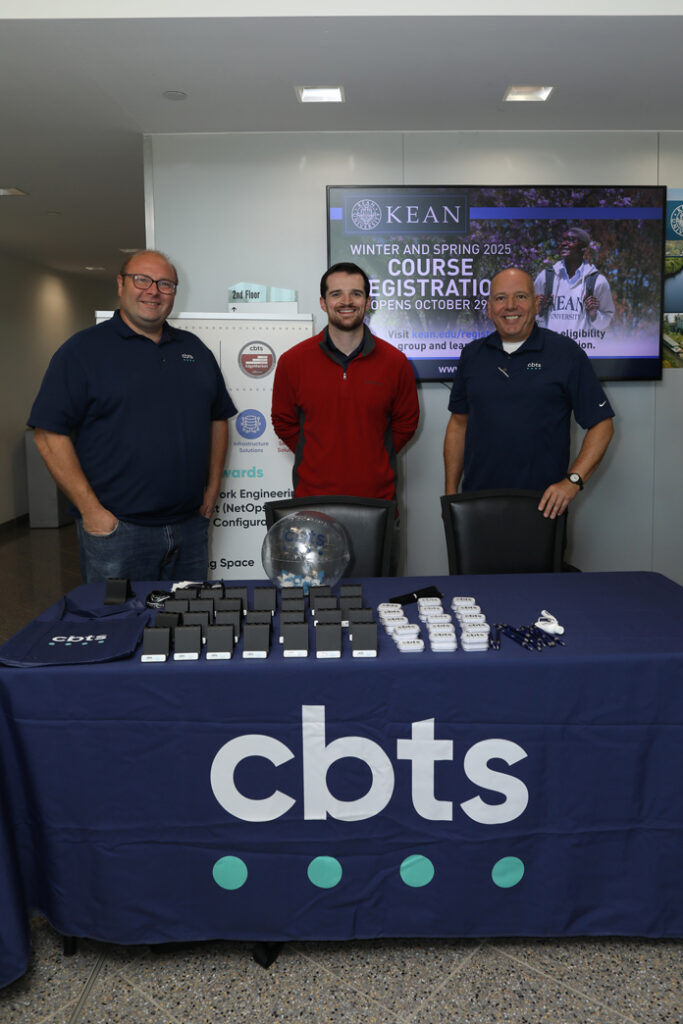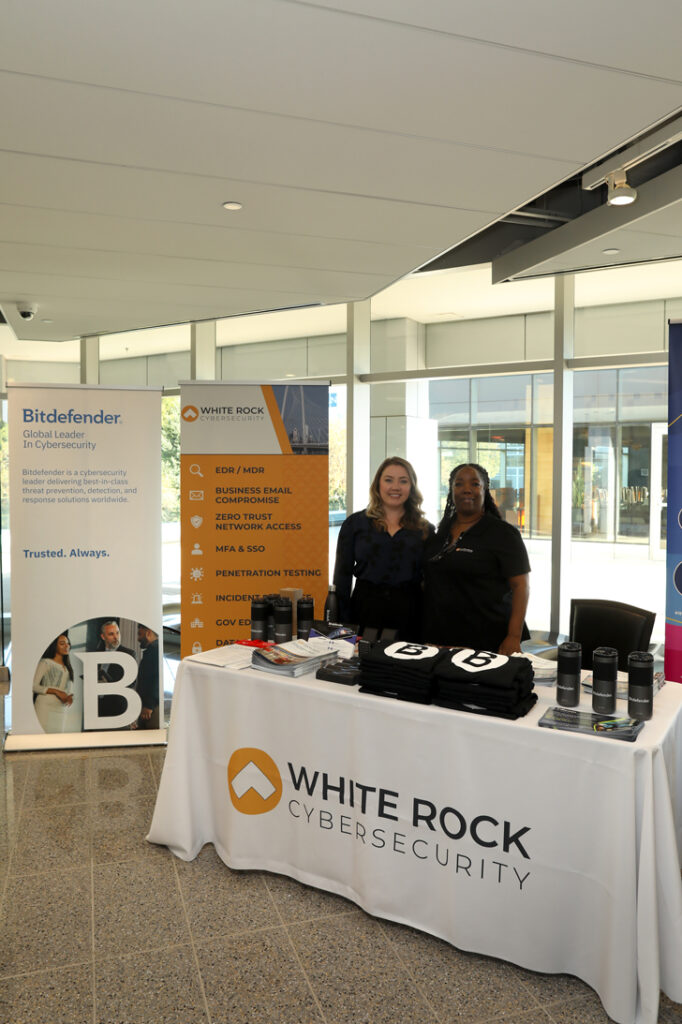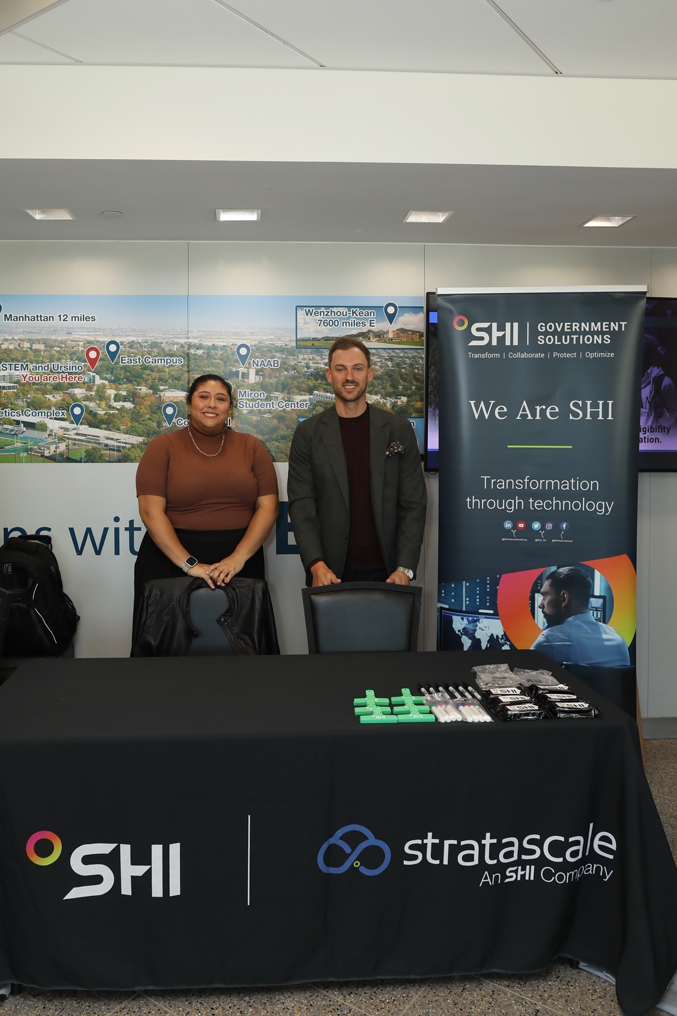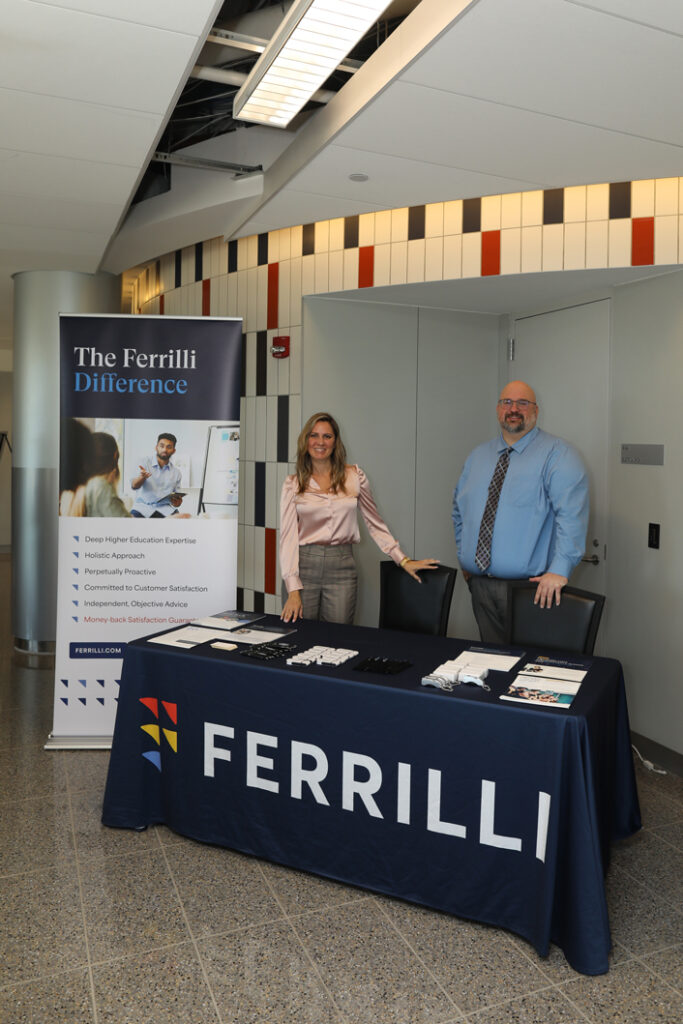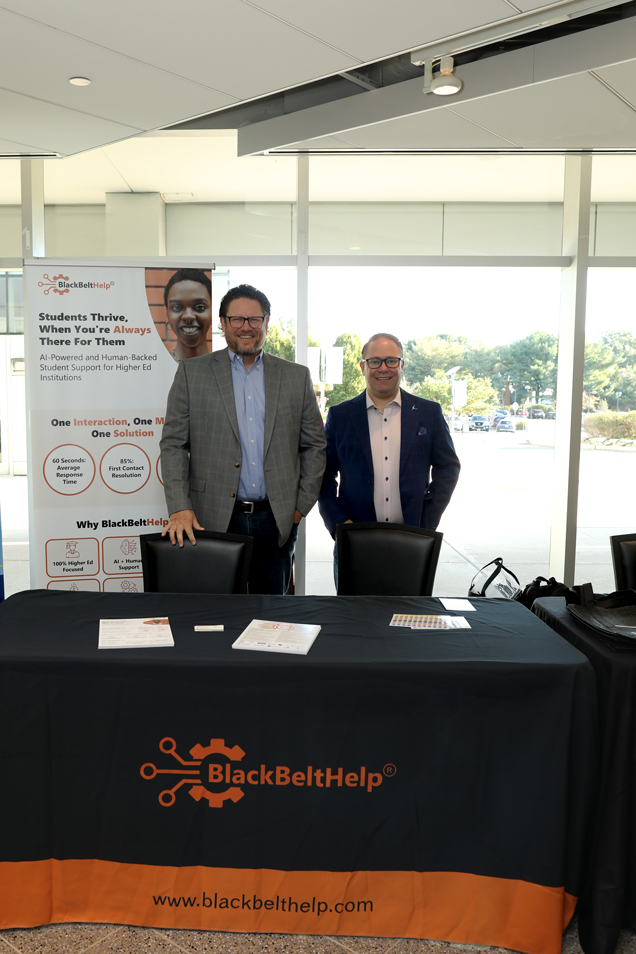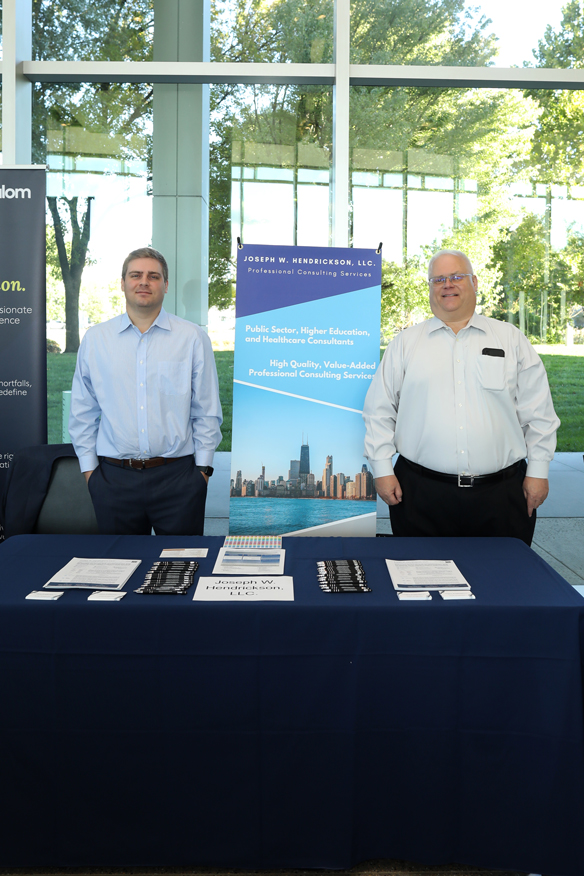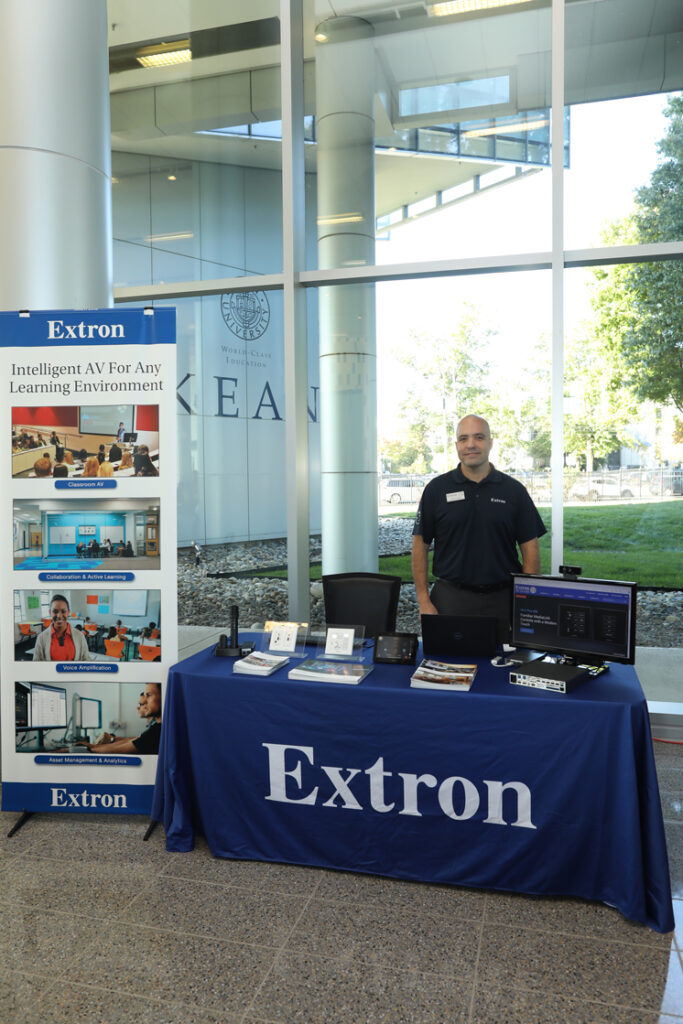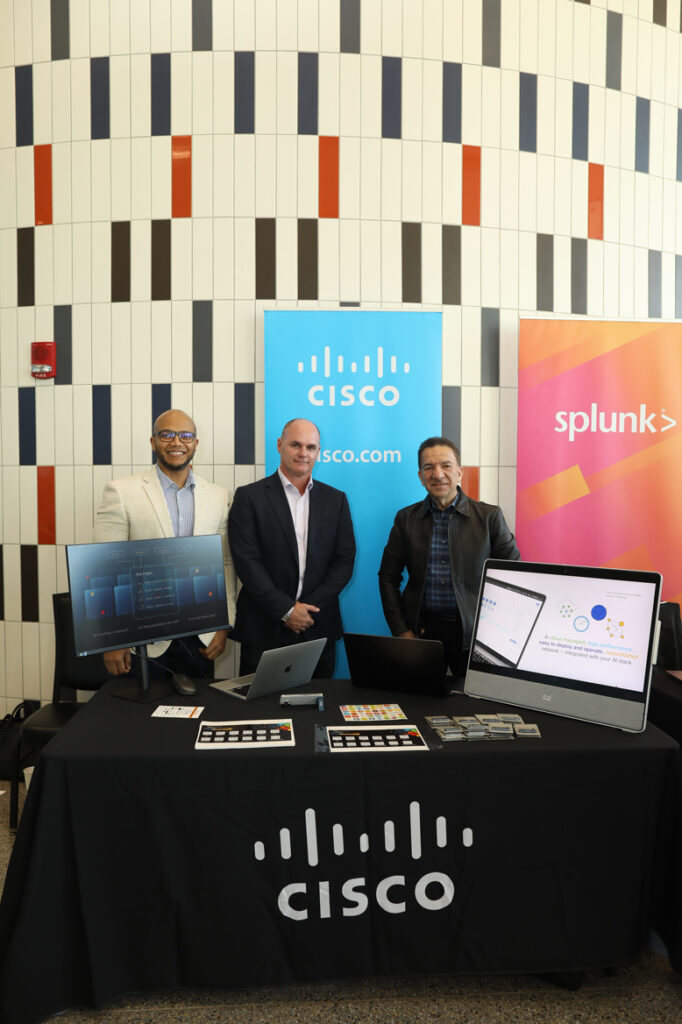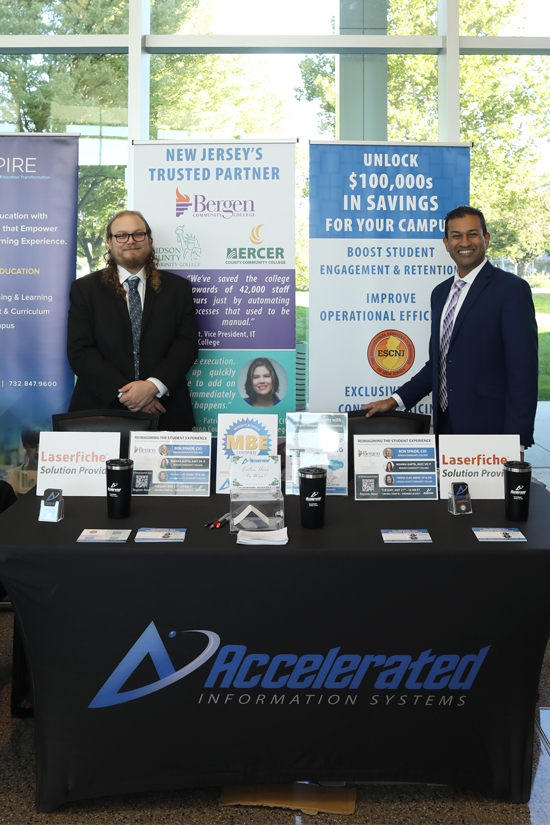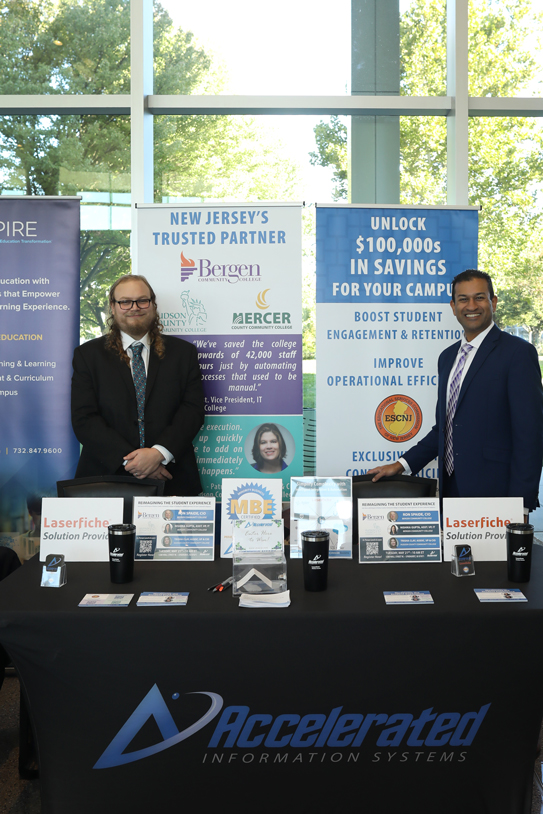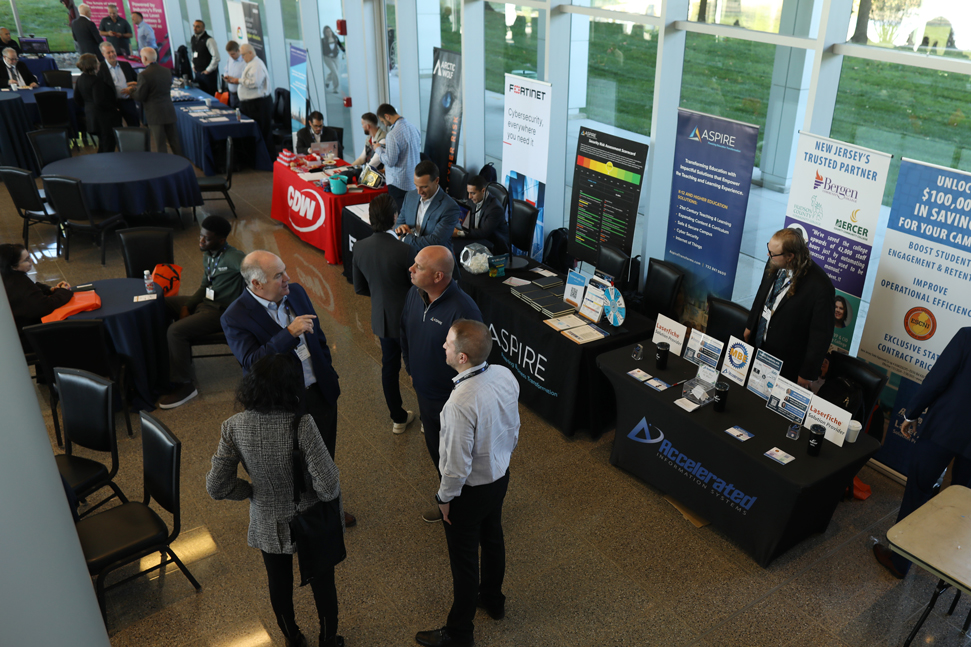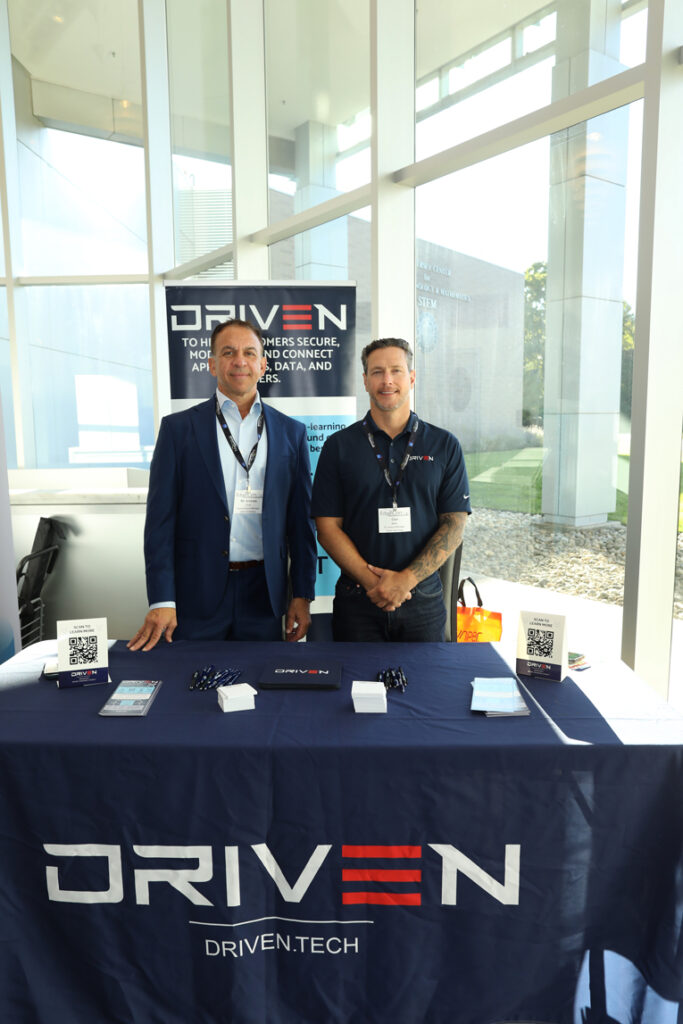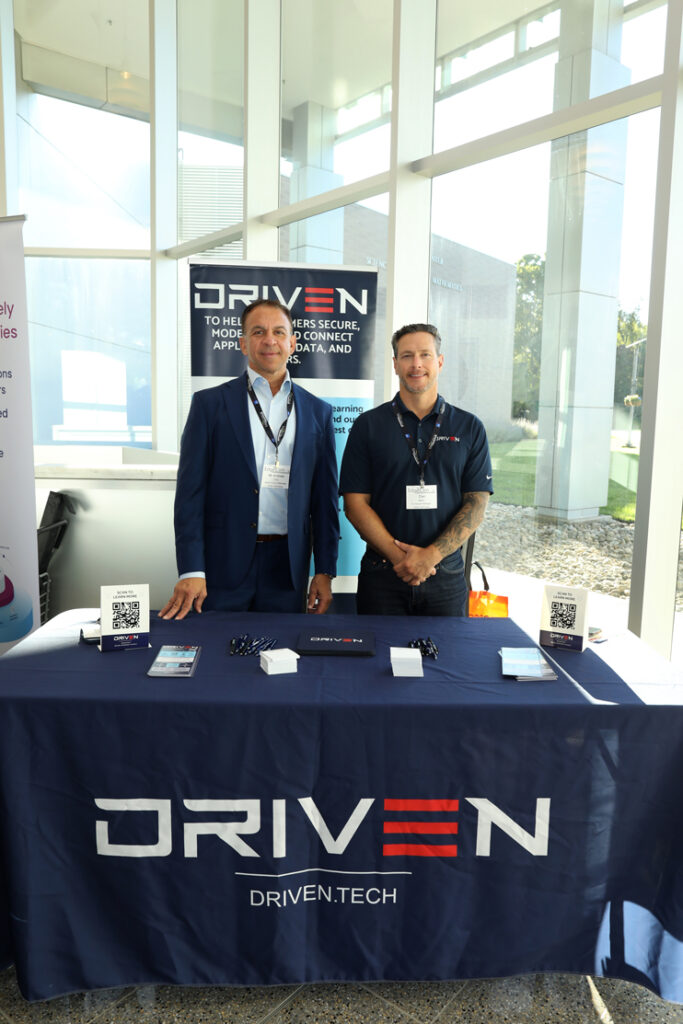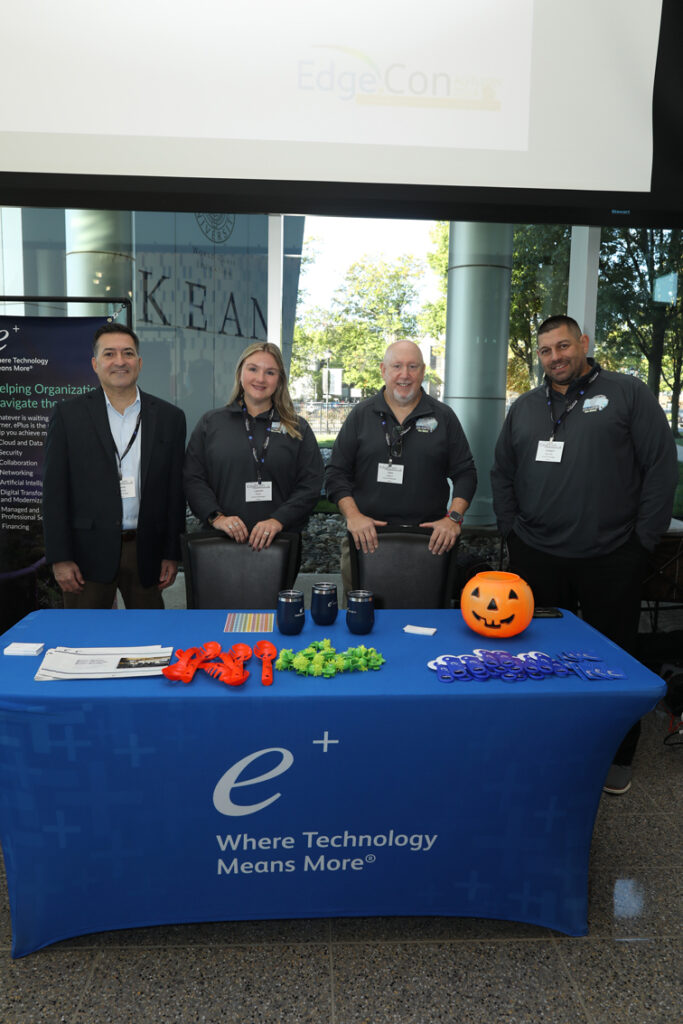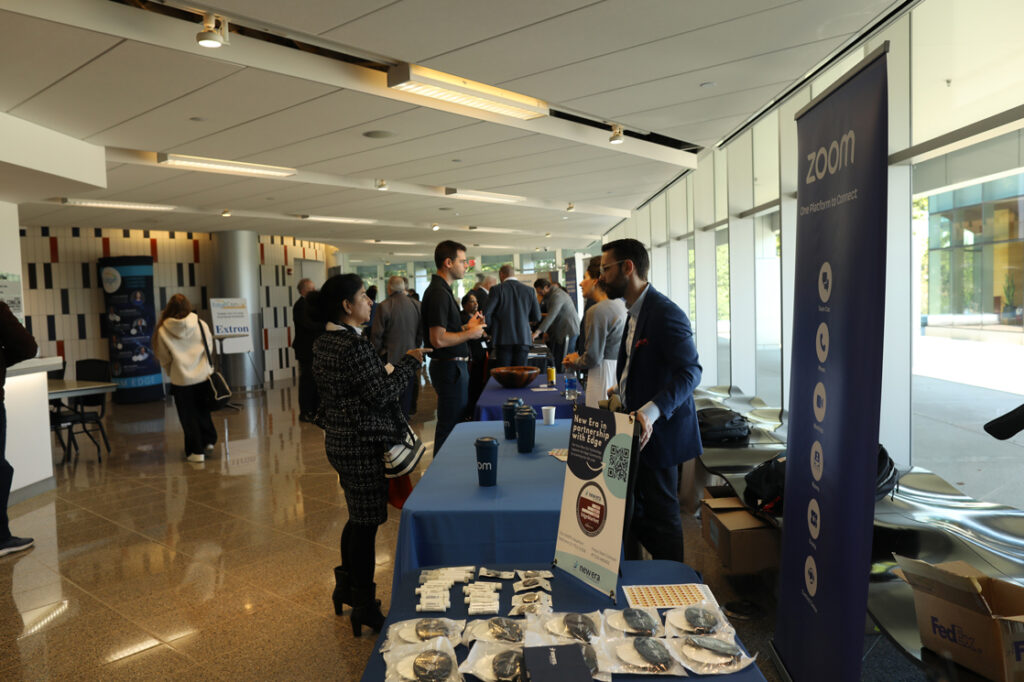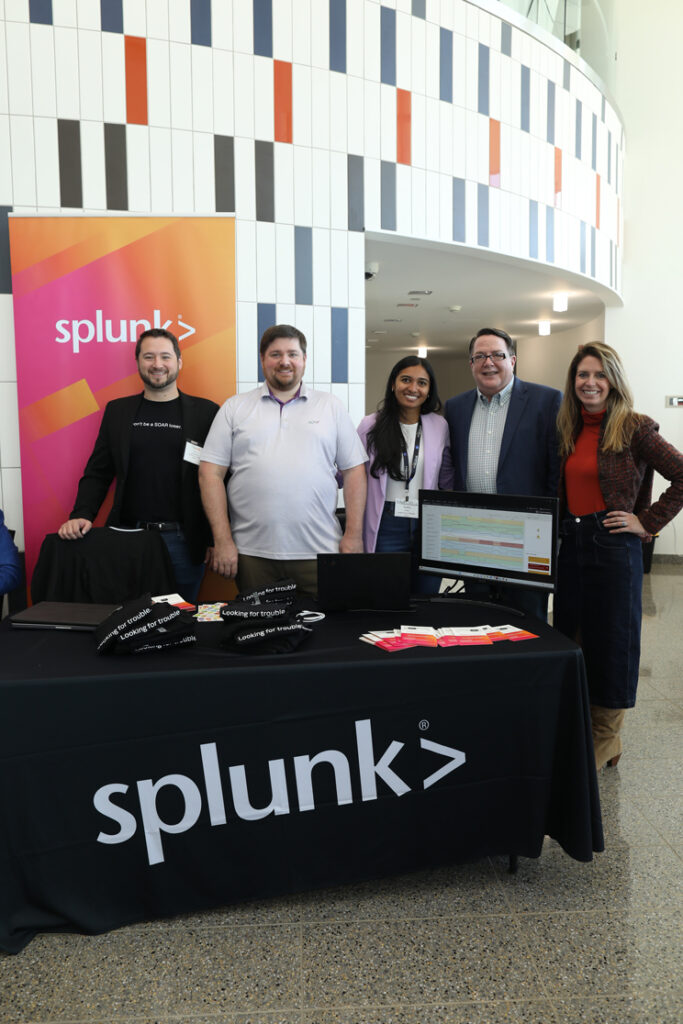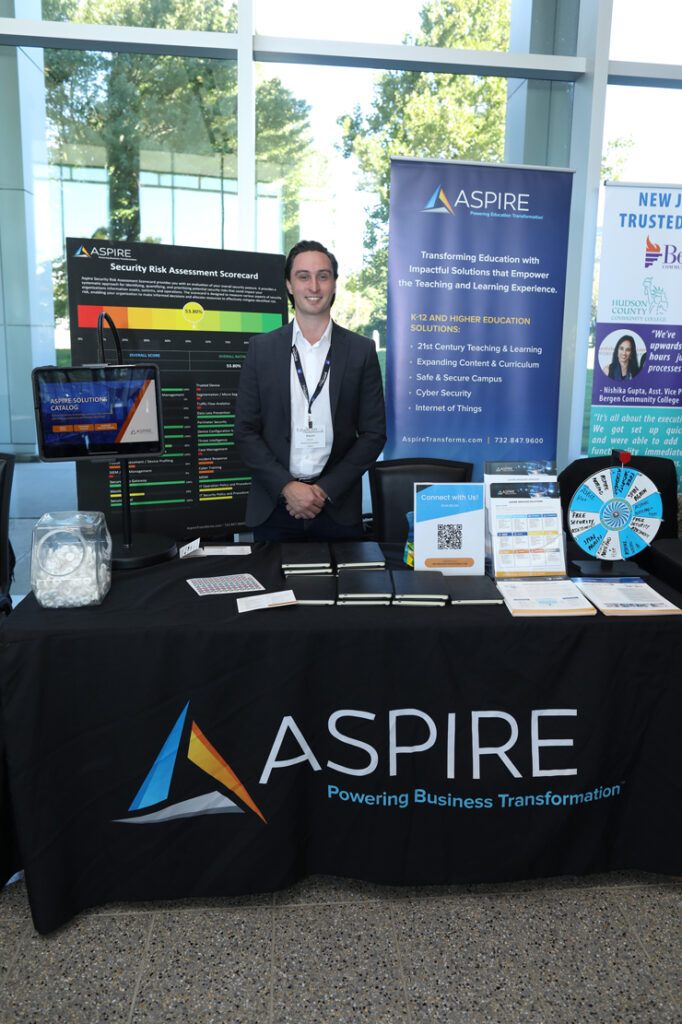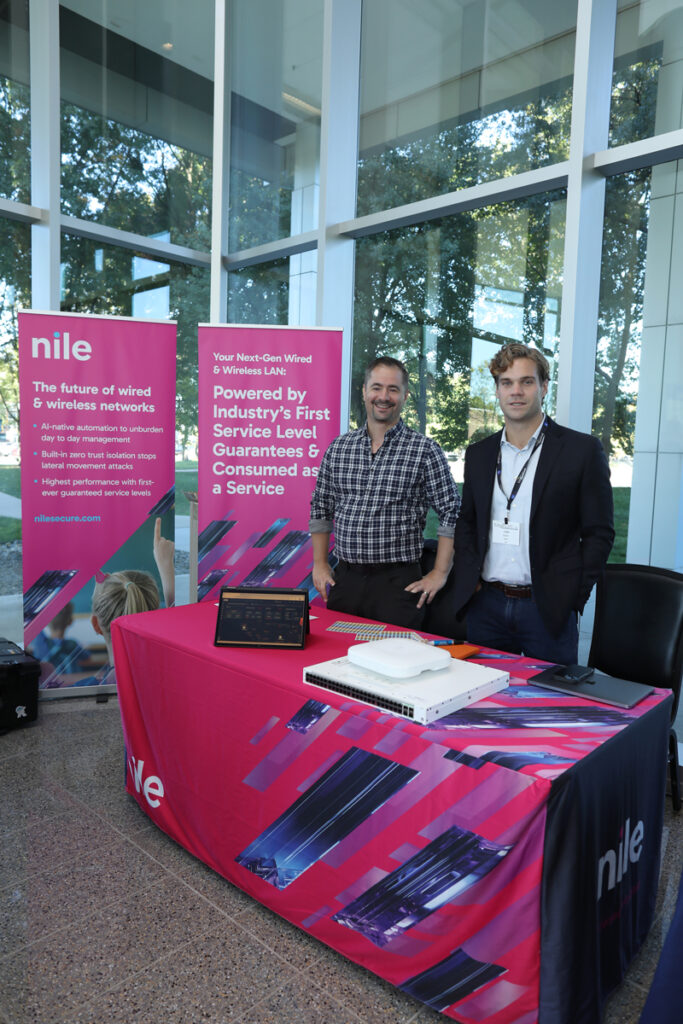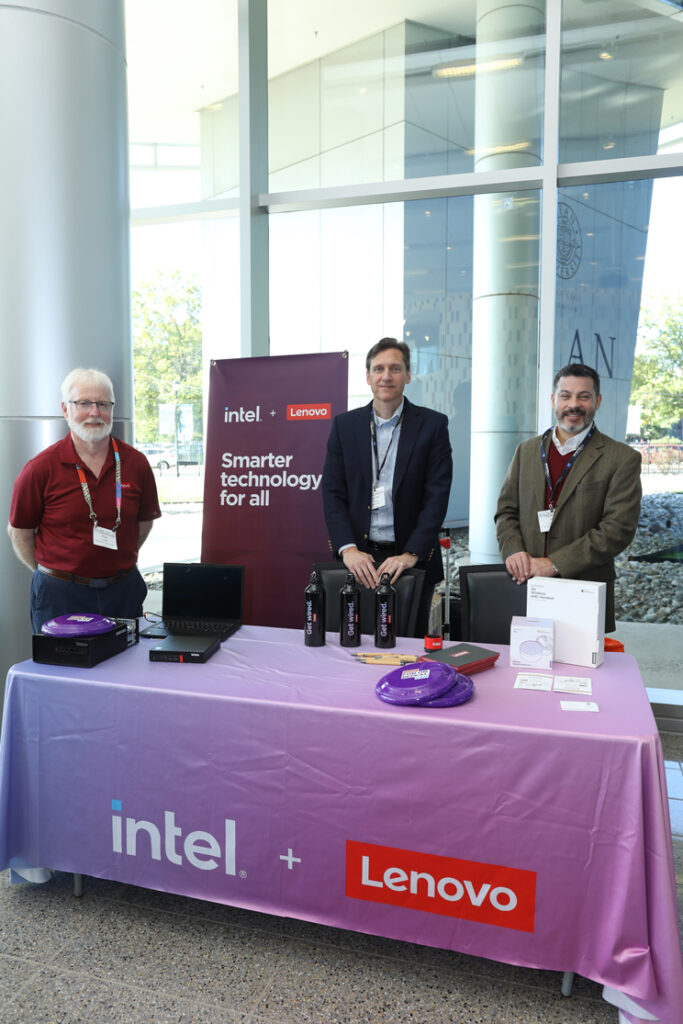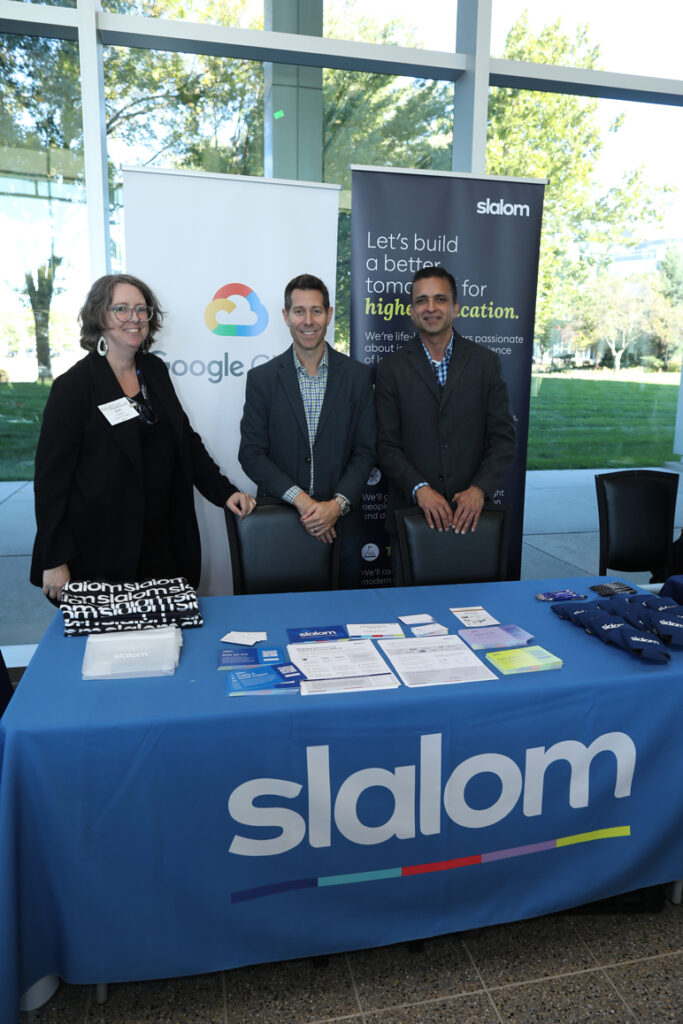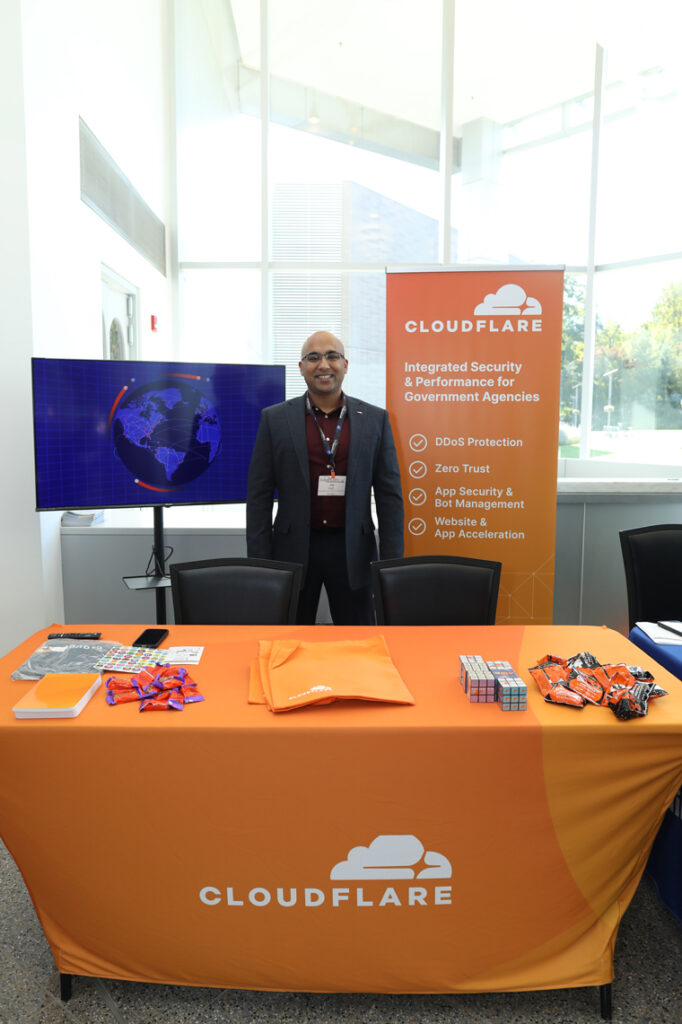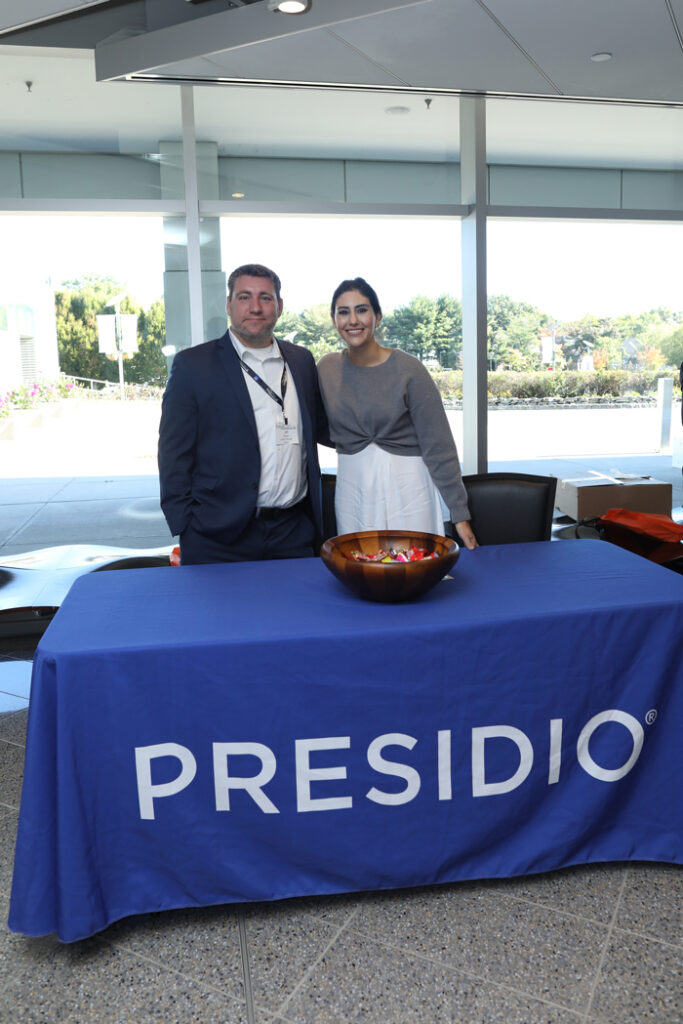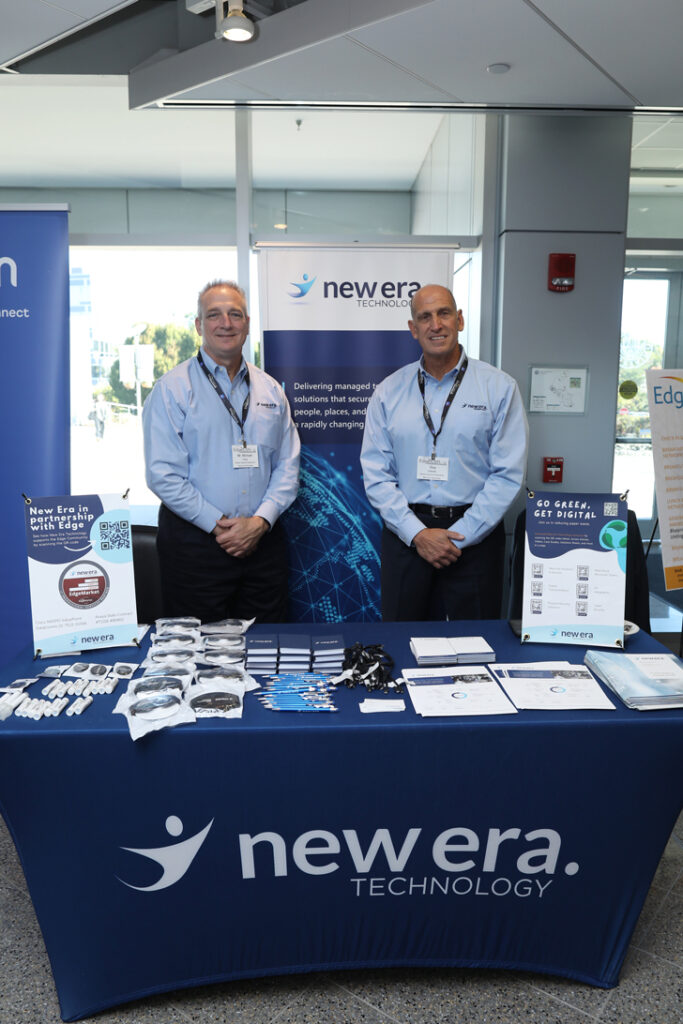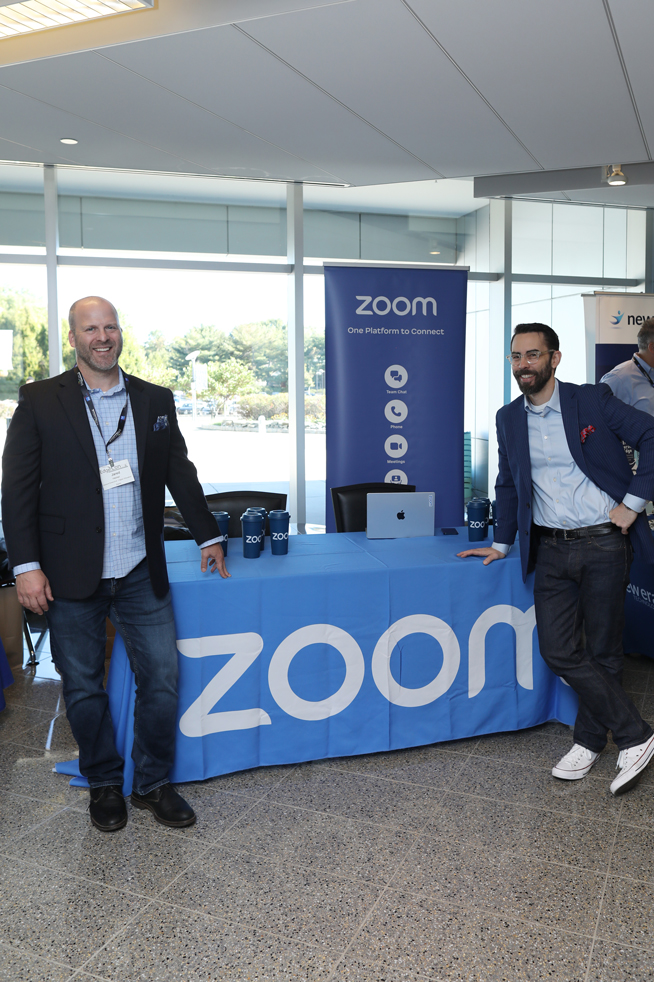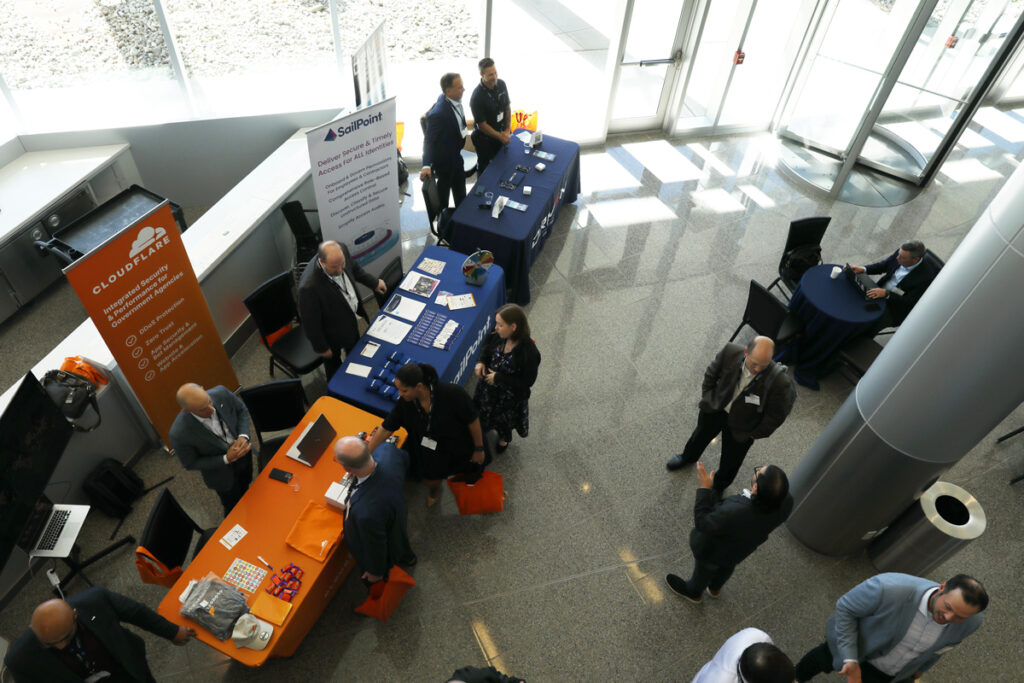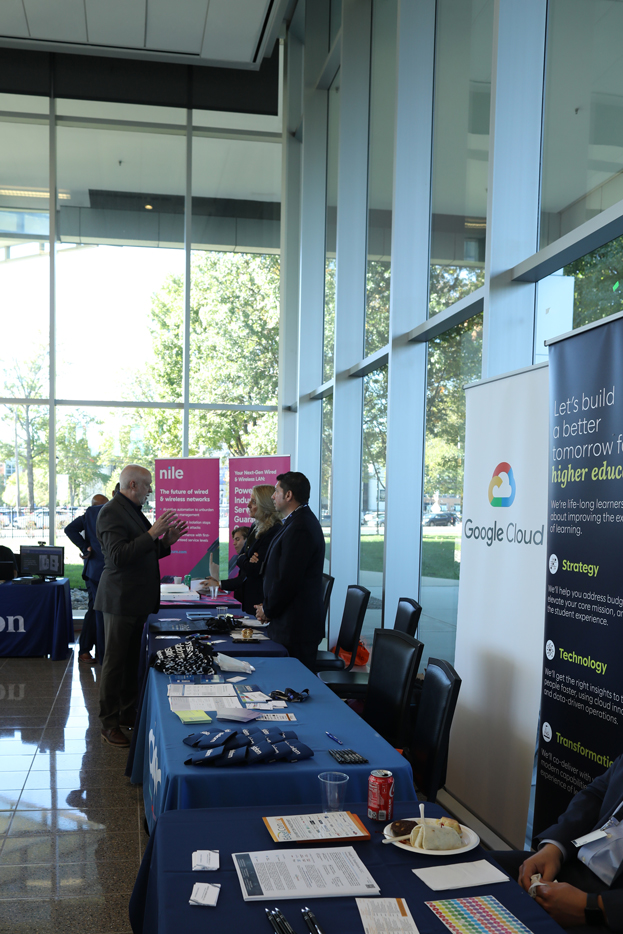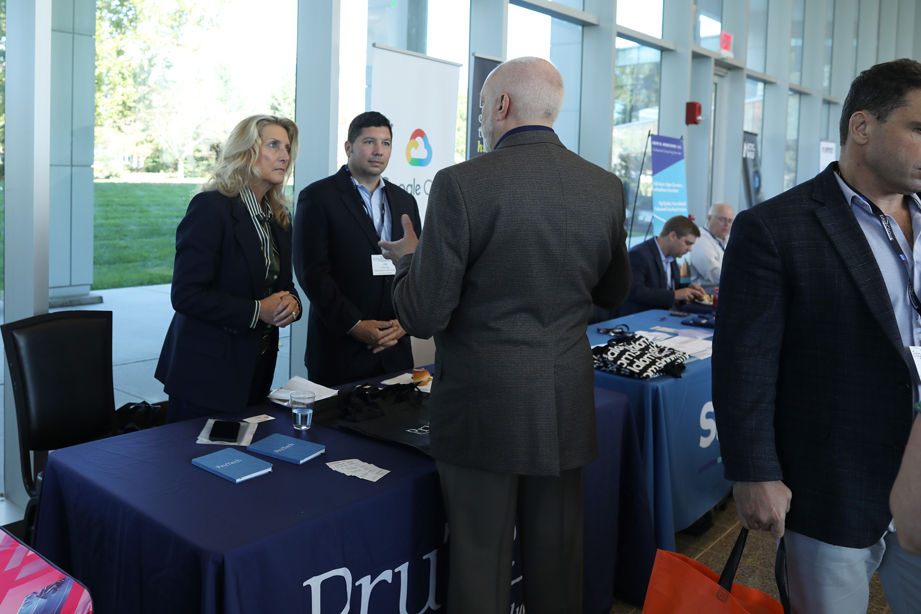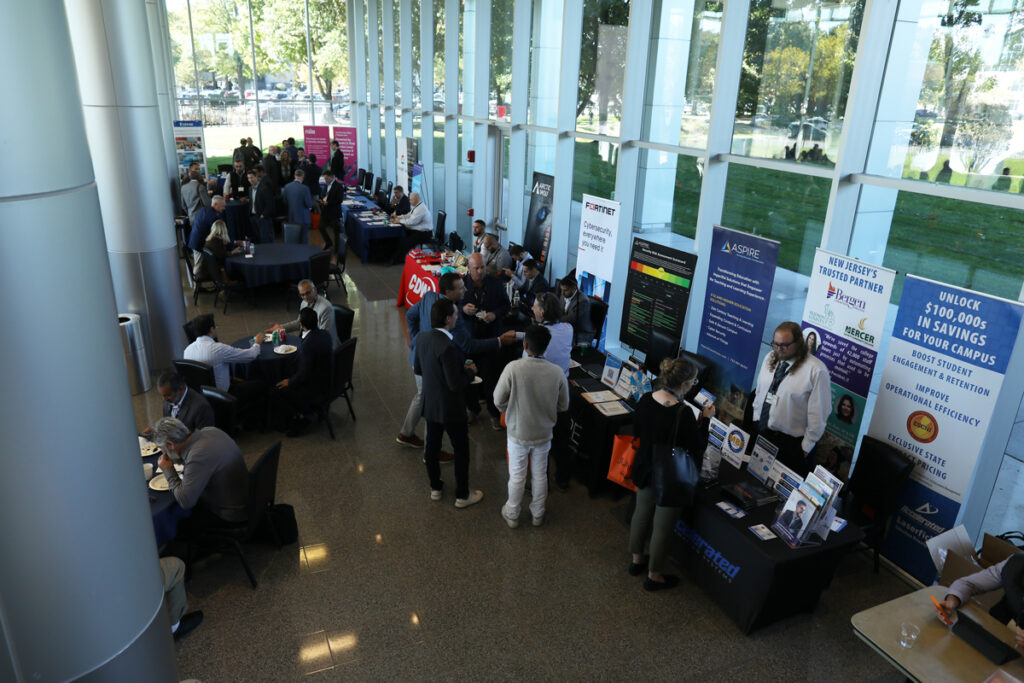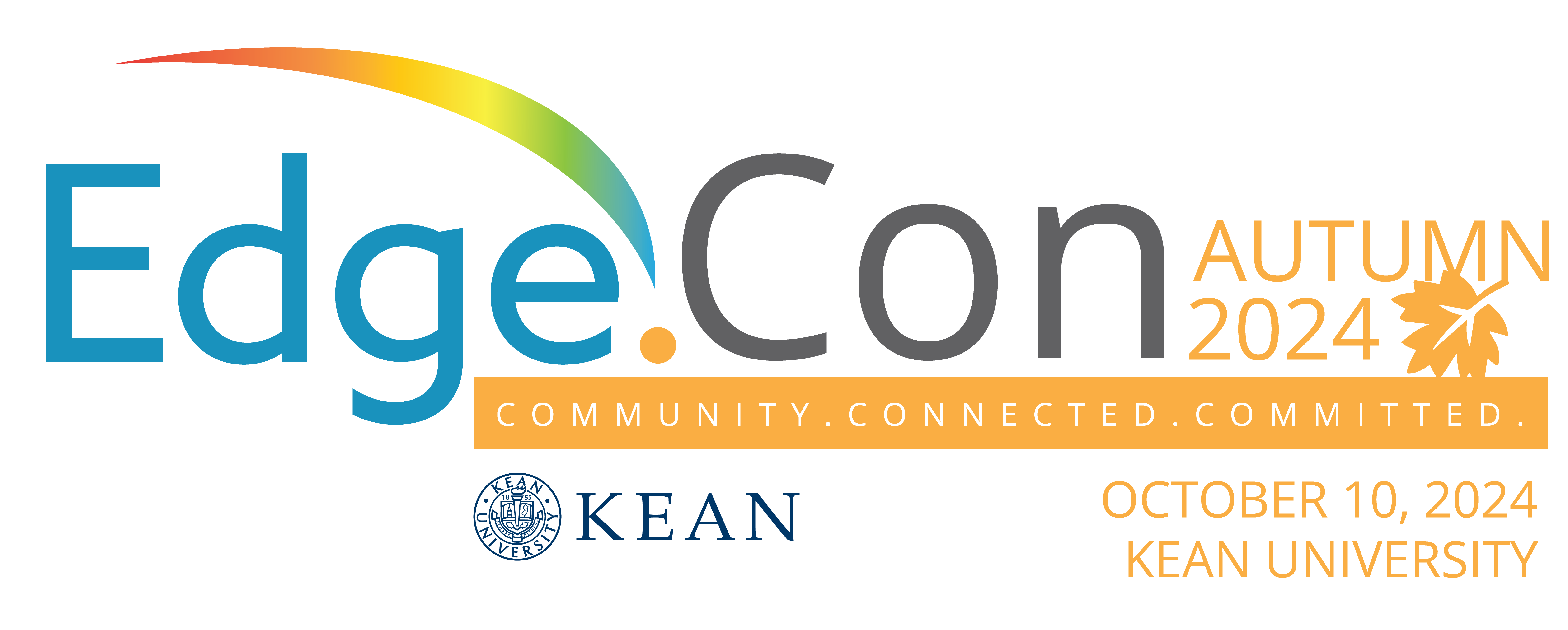
On October 10, 300+ attendees from institutions and organizations from across the country came together at EdgeCon Autumn 2024 for an exciting day of panel discussions, breakout sessions, awards, and peer and exhibitor networking. Hosted at Kean University’s state-of-the-art STEM building, EdgeCon welcomed esteemed presenters from around the region who shared their insight and expertise into overcoming challenges and seizing opportunities in today’s dynamic educational landscape.
Blueprints for Institutional Success
EdgeCon’s keynote panel discussion, Blueprints for Success: Uniting Strategy and Innovation in Higher Education, delved into how higher education institutions, from research-intensive universities to community colleges, can achieve sustained success by uniting strategy and innovation through enterprise architecture. Moderated by Ed Wozencroft, Vice President for Digital Strategy, Chief Digital Officer, and CIO, New Jersey Institute of Technology, this session discussed that no matter the unique challenges an institution is facing, collaboration across the organization is key.
The keynote presentation included panelists, Henry Pruitt, Enterprise Architect, NYU, Christopher Markham, Executive Vice President, Edge, and Mark Sedlock, Vice President and Chief Technology Officer, Rowan University, who shared how a well-integrated approach to technology and strategic planning can align every facet of an institution, from leadership to front-line staff, driving progress toward an institutional mission. Attendees learned more about leveraging enterprise architecture to foster a culture of collaboration, streamline operations, and propel an institution toward enduring excellence in a dynamic educational landscape.
Generative AI Literacy for Everyone
One of the first breakout sessions of the day was led by Gamin Bartle, CIO, William Paterson University, where he explored putting Generative AI literacy for students, faculty, and staff at the center of the University’s AI strategy. William Paterson is currently developing two Gen AI policies, one for Academic Affairs and the other for the operational and support divisions, and is incorporating Gen AI Literacy into University Core Curriculum courses so that students can start gaining experience during their first semester. Bartle explained how faculty development has been underway across campus since 2023, and many faculty members and staff have been engaged in learning more about Gen AI Literacy over the past year. Attendees gained a closer look at Gen AI Literacy programming, the policies that are in progress, and the importance of equipping the entire university community with the skills to navigate and leverage these emerging technologies responsibly.
Enhancing Student Success through AI-Powered Applications
The morning sessions also included a presentation that demonstrated how AI, specifically ChatGPT, can significantly enhance student and faculty success in higher education. Sahana Varadaraju, Senior Cloud Application Developer from Rowan University, introduced a Python programming language-based application that integrates with ChatGPT to handle natural language queries related to courses, schedules, and seat availability. Varadaraju showed how students and faculty can ask simple questions through the application, and the background process will provide appropriate solutions based on the database information stored.
The session showcased examples in the context of Section Tally, demonstrating the application’s real-time response capabilities. Attendees learned about the benefits of an AI-powered approach and its potential to transform the higher education landscape by providing timely and accurate information to users, ultimately contributing to their success and satisfaction.

“Good selection of sessions. Nice mix of professional development and meeting with the vendors.”
– Henry Pruitt, Enterprise Architect, New York University

Empowering Your Network for Education and Innovation
Edge’s Jim Stankiewicz, Principal Network Architect, and Bruce Tyrrell, AVP, Programs and Services, gave an in-depth update on EdgeNet and explored how Edge is modernizing and simplifying networking to deliver exceptional value to their members. Attendees saw how the innovative network is designed to reduce power consumption while ensuring a superior quality of service. Edge discussed their commitment to keeping members at the forefront of modern technology, including advance line monitoring to improve dark fiber visibility, and support for campus managed optical fiber and high-speed transport for colocation. The session also included an attendee roundtable to discuss how their organizations are managing guest network services, enabling network segmentation, and operating residence hall networks.
Revolutionizing Campus Networks
In a breakout session led by Shaliesh Shenoy, Assistant Dean for Information Technology, Albert Einstein College of Medicine, and Austin Hawthorne, VP Solution Architecture, Nile, attendees were taken on a transformative journey from a traditional campus network to a cutting-edge, automated Network-as-a-Service (NaaS) model. The presentation explored the strategic decisions and key benefits behind this transition, focusing on how the new approach has enhanced security, operational efficiency, and user experience across the College. Whether participants were IT professionals, network architects, or academic administrators, they gained actionable insights into how automation and zero-trust principles can help revolutionize their institution’s network infrastructure.
Implementing an Esports Hub at Your Institution
In this interactive session, David Bruno, Associate Dean, Educational Programming and External Relations, and Sean Dwyer, Esports Director from Camden County College joined Joshua Kell, CEO, Horizon AVL Esports Integration, to explore the key components of building a successful esports program, from securing institutional support to creating inclusive spaces for competitive and casual gamers alike. Designed for educators, administrators, and leaders eager to establish or enhance an esports hub at their institution, this workshop covered the essentials of setting up infrastructure, such as gaming arenas and online platforms, and discussed strategies for recruiting and retaining a diverse group of participants. Attendees left with a clear roadmap for launching or expanding an esports hub at their institution, along with practical tools and resources to support their efforts.
Enhancing Data Governance and Literacy with Modern Technologies
In the pursuit of efficient data management, Rowan University is embracing modern technologies and methodologies to establish a robust data governance framework and promote data literacy across the university community. Shante Walker, Institutional Research Analyst, Rowan University, discussed how fostering data literacy can promote informed decision-making, drive innovation, and enhance the overall effectiveness of an institution. Walker shared how they are leveraging Informatica’s Cloud Data Governance and Catalog (CDGC) to develop a comprehensive Data Catalog, visualize data lineage, and apply data quality rules to critical data elements. The presentation delved into the latest trends in data governance, the practical benefits of modern data technologies, and how it is helping empower the Rowan community with the tools and knowledge they need to thrive in an increasingly data-driven world.
Crafting a Cybersecurity Blueprint
Dr. Dawn Dunkerley, Lead Virtual Chief Information Security Officer, Edge, and Moe Rahman, Chief Information Officer, Rider University, led the session, From Policy to Practice: Crafting a Cybersecurity Blueprint That Everyone Owns and Governs. Together they explored the journey of transforming cybersecurity policies into actionable practices that involve participation and governance at all levels of an institution. The focus was on developing a cybersecurity blueprint that not only adheres to the highest standards of security and regulatory mandates but is also embraced and implemented by everyone within the organization, from IT staff to administrative leaders to faculty and students.
Reviewing Websites of Top 100 Universities
In this breakout session, Jake Martar, eLearning Coordinator, University of Arkansas for Medical Sciences, presented findings from a review of the top 100 non-profit U.S. universities with online bachelor programs, as ranked by U.S. News & World Report 2024. Martar explained by analyzing the range of Generative AI resources across these institutions, we can identify key themes and best practices that institutions should consider when developing their AI-related support systems. Participants gained insights into the current landscape of Generative AI resources in higher education, including common themes and gaps, and how to enhance their institutional resources to better prepare for the ongoing integration of AI in academia.
Selecting Technology to Realize Institutional Goals
At most institutions, the search for a new technology solution involves responding to institutional initiatives, contending with flat or shrinking technology budgets, or addressing specific pain points. However, a growing number of higher education leaders are balancing these considerations with a solution’s fit within an ecosystem or with broader organizational goals. This workshop, led by ListEdTech’s Justin Menard, CEO, and James Wiley, VP of Product and Research, explored how these institutions are ensuring fit and identifying the decision points for technology acquisition to increase the chance of alignment between technology and institutional goals. Participants left the session being able to identify ways to evaluate technology solutions and determine how they might support their institutional goals.

“Outstanding event. Right mix of technology, education, and industry. Attracted meaningful thought leaders and continued to build collaboration.”
— Chris Treib, Vice President of Information Technology, Geneva College

Leveraging Generative AI Tools
Shevon Jackson, Senior Director of Information Technology, Rutgers Business School, and Adam Deer, Industry Executive for Public Sector, EDU, Google, led the afternoon breakout session, Empowering Institutions and Learners While Taking Back Control of Generative AI. They discussed how Google AI for Campus is revolutionizing the way institutions manage and leverage generative AI tools and provides a centralized hub for these AI tools, as well as Large Language Models, including Gemini, Claude, Copilot, and GPT-4o. Attendees learned about the benefits of streamlined management, enhanced security, and the potential for innovative applications across various academic domains. The team at Rutgers Business School also shared how they rolled out Google AI for Campus to students, faculty, and staff, their experience in early-phase deployment, and how they plan to leverage the platform moving forward.
Using the Cloud to Enhance Agility, Security, and Collaboration
In an era of rapid technological advancement, universities must adopt forward-thinking IT strategies to remain competitive and responsive to the needs of students, faculty, and researchers. This presentation by Paul Fisher, Chief Information Officer, Seton Hall University, and Matthew J Stevenson, Executive Director – IT, Seton Hall University, explored the comprehensive cloud strategy implemented at Seton Hall and how it was designed to enhance institutional agility, security, and collaboration. Driven by the need for scalability, cost-efficiency, and improved service delivery, the institution went through a strategic shift that began more than 10 years ago, from on-premises infrastructure to a cloud-first approach. Presenters highlighted how this strategy has enabled the university to streamline operations, foster innovative teaching and research, and respond swiftly to evolving challenges. Attendees also gained practical knowledge on developing and executing a cloud strategy in higher education, ensuring it aligns with institutional goals while addressing the unique challenges of academia.
Building Student-Led SOCs in Higher Education
Higher Education Security Teams are often understaffed and underfunded and are at greater risk for cybersecurity threats. While many schools recognize the potential of student internships in their Cybersecurity programs, they often struggle with the management and training required to integrate these students into their Security Teams. Building Student-Led SOCs in Higher Education led by Ed Wozencroft, Vice President for Digital Strategy, Chief Digital Officer, and CIO, NJIT, and Matt Clemmons, Managing Director, Splunk Services, TekStream, showcased how Louisiana State University (LSU) formalized its Student Led SOC program to create a framework that trains students to become productive members of a real-world Security Team alongside partner TekStream Solutions. Attendees saw how university-built partnerships with peer institutions and the State of Louisiana support cybersecurity initiatives and cultivate a skilled workforce in the state. The session also explored how this model is currently rolling out in New Jersey and ways institutions can participate.
Success with the Student Experience
Attendees of this breakout session received an up-close look at how Thomas Edison State University (TESU) moved from the original Ellucian Portal to the new myEdison Experience and how this new technology provides a single sign-on (SSO) approach to all student systems. August “Chip” Stoll, Senior Director, Enterprise Applications, and Christine Carter, Director of Graduate Admissions, Recruitment, and Enrollment Technology, from TESU talked about how they set up the system, some of their customized cards, their launch of Experience this past June, and their plans for governance as they roll it out to additional constituencies.
Modernize the Student Experience
Nishika Gupta, Assistant Vice President, IT, Bergen Community College, and Patricia Clay, Associate Vice President & CIO, Hudson County Community College, led a dynamic discussion about improving on-campus processes so institutions can focus on student retention and engagement. They explored cutting-edge technologies, proven methodologies, and best practices tailored to the unique needs of today’s learners. Whether an institution is spearheading digital transformation efforts or seeking to stay ahead of the curve in higher education innovation, the session provided an opportunity to be part of a collaborative group who is helping shape the future of education.
Elevating the Institution’s Global Profile
In an increasingly competitive global educational landscape, institutions must leverage technology to enhance student support and engagement. The session, Elevating the Institution’s Global Profile Through Student Support Applications and OIT Support, led by Angela Sen, Developer/Analyst I, Software and Application Services, Office of Information Technology, Princeton University, highlighted the critical role of student support applications and the Office of Information Technology in advancing a university’s global profile. By adopting and optimizing these technologies, universities can enhance student satisfaction, academic performance, and institutional reputation on the global stage.
Innovation in Procurement
Dan Miller, AVP for EdgeMarket, introduced attendees to the EdgeMarket Higher Education Ecosystem RFP and how this solution is changing the game for higher education procurement. He shared how this strategic approach is designed to simplify the procurement process, foster collaboration between members and solution providers, and drive better outcomes for institutions. The session introduced the Business Capability Model and the Business Outcomes Framework and how they can connect solution investments to tangible business results and align solution portfolios with the operational needs of higher education institutions. Miller shared that by leveraging these powerful tools, institutions can access a streamlined procurement pathway that empowers them to make more informed and effective system selections.

“Always a great conference for networking with my peers at other institutions. There is consistently the right mix of vendors and the sessions/presentations are always very timely in discussing challenges/solutions that other institutions have encountered.”
– Ron Spaide, CIO, Bergen Community College

Awarding Excellence in the Education Community
To celebrate the incredible achievements and contributions that higher education institutions are making throughout the region, Edge presented several awards at this year’s event.

New Jersey Institute of Technology (NJIT) was recognized with the High Performance Computing Innovation Award for their vision and leadership in the area of high performance computing. In the last year, the technology and network teams at NJIT have developed a remarkable HPC platform, incorporating both on-site and remote data center resources. This platform is designed to be secure and scalable, effectively addressing the increasing needs of their research community.
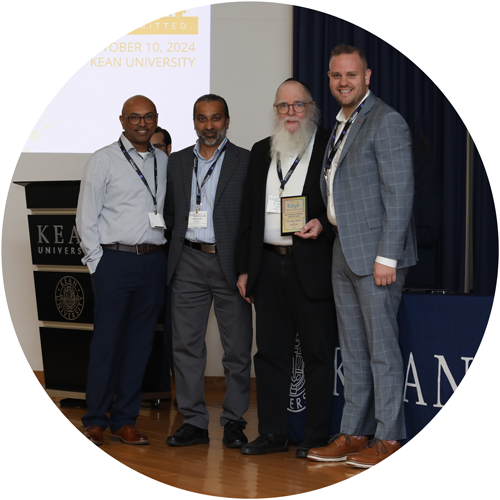
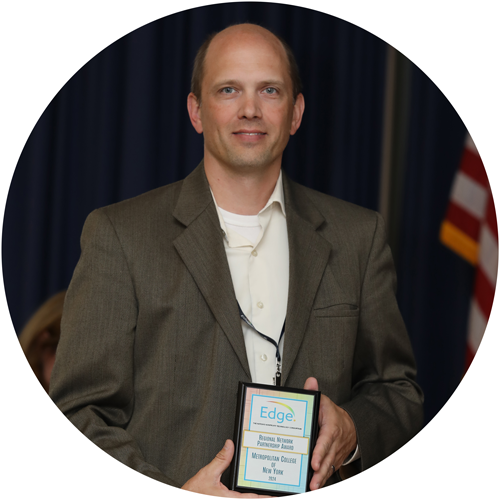
Edge recognized the Metropolitan College of New York with the Regional Network Partnership Award for their commitment to collaboration and seeking out the support and capabilities of the Edge network and community during a time of rapid change and transformation.
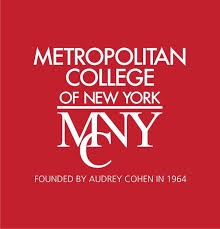
Middlesex College was honored with the Community College Cyber-Preparedness Award in recognition of their commitment and exceptional efforts to exceed regulatory standards, ensuring the safety of their educational community.
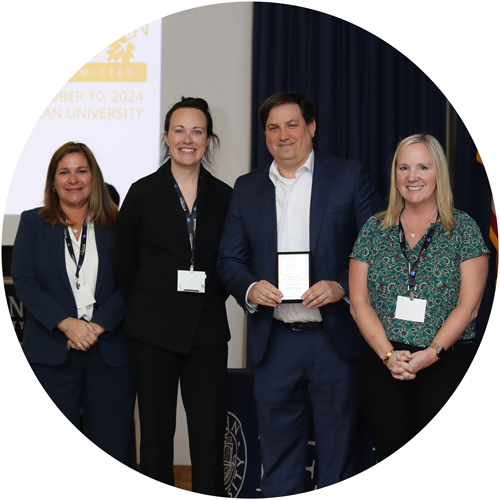
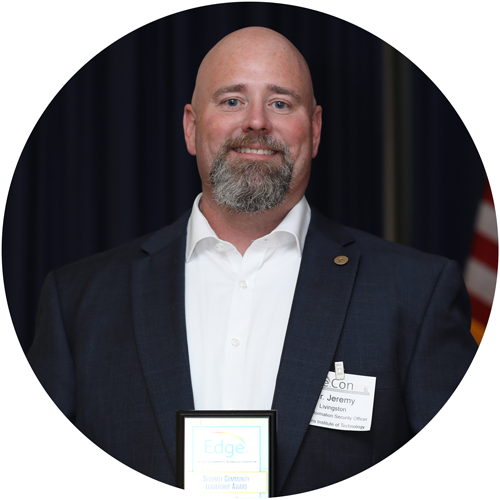
Edge honored Jeremy Livingston, Chief Information Security Officer at Stevens Institute of Technology with the Security Community Leadership Award for his pivotal contribution in relaunching the Edge IT Security Community of Practice, a forum for collaboration and collective intelligence to fight cybersecurity threats.
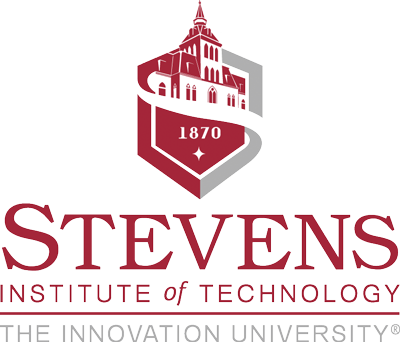

The award for Exemplary Online Program Leadership went to Rowan University for their efforts to support student success and grow their online program rapidly, effectively, and without sacrificing quality.
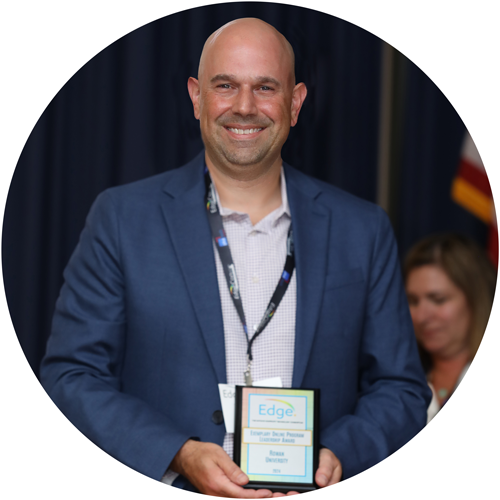
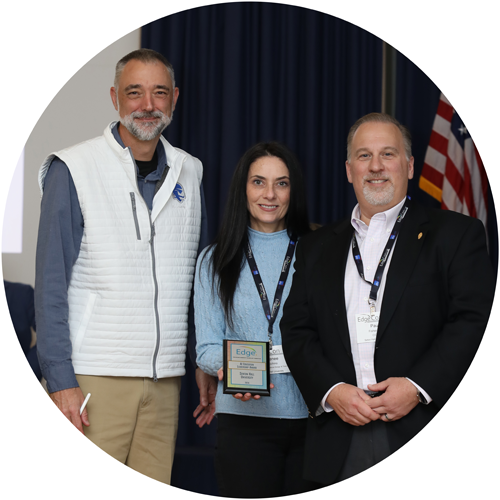
Following EdgeCon Spring, which featured an inspiring keynote on artificial intelligence (AI) and highlighted the growing significance of the subject, the instructional team at Seton Hall University took the initiative to engage the Edge community. They collaborated with Edge to organize the inaugural AI Teaching and Learning Symposium. To acknowledge the University’s ongoing leadership and their involvement in the first cohort of the American Association of Colleges and Universities (AAC&U) Institute on AI, Pedagogy, and the Curriculum, Edge awarded Seton Hall the AI Education Leadership Award.
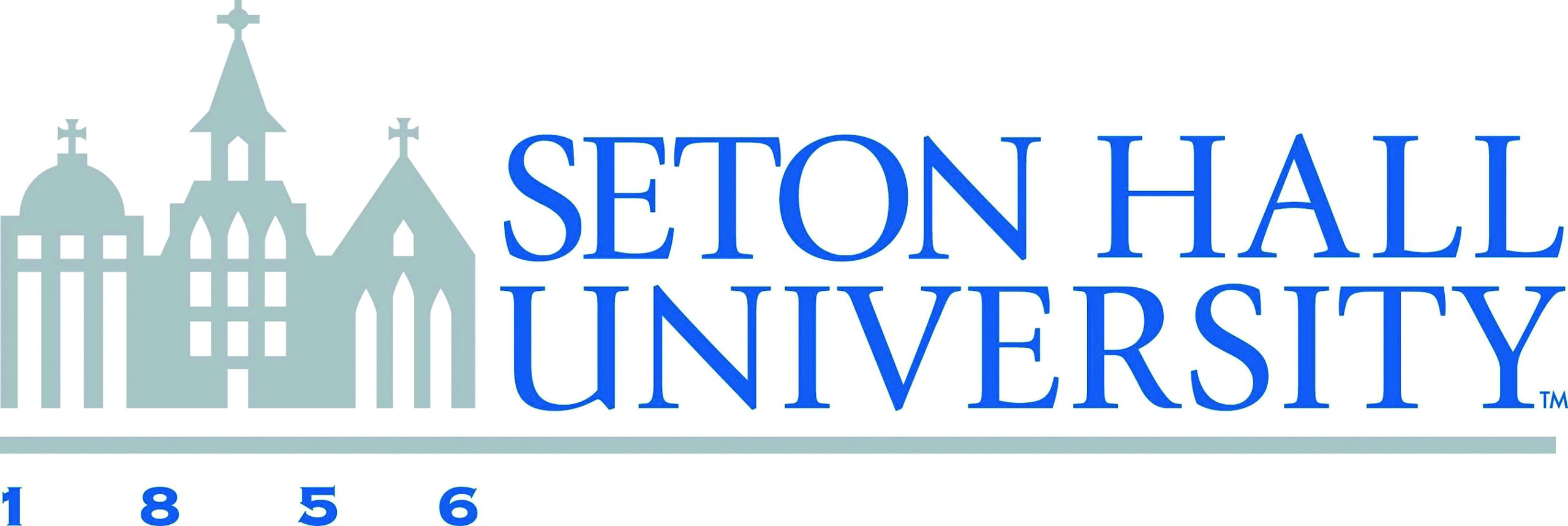

Stephen K. Burley, M.D., D. Phil. from Rutgers, The State University of New Jersey, was honored with the Research Impact Award to celebrate his Pioneering Work in Structural Biology: Transformative Contributions to Biomedical Research and Global Scientific Collaboration. As an internationally recognized scholar, Dr. Burley has published extensively in data science and bioinformatics, AI/machine learning, structural biology, and clinical oncology.
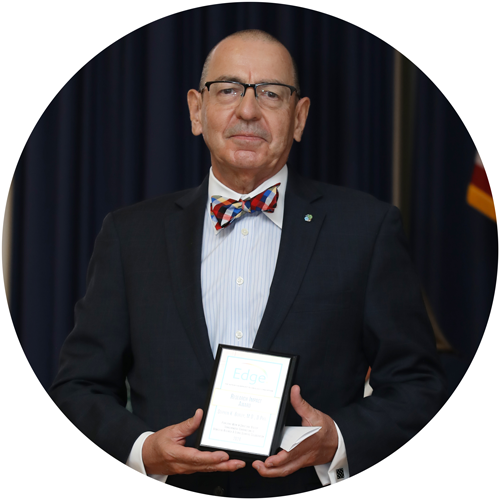
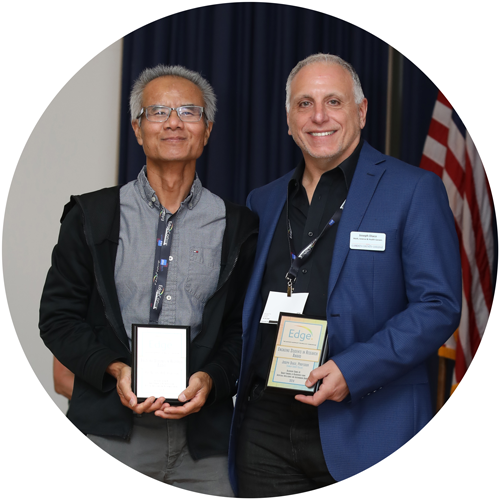
Joseph Diaco, Professor, Camden County College, and Dr. Hieu Nguyen, Professor, Rowan University, who were principal investigators for the Precision Agriculture Using Drone/AI Technologies project, Blueberry Drone AI: Smart Farming of Blueberries using Artificial Intelligence and Autonomous Drones, were presented with the Engaging Students in Collaborative Research Award. This accolade acknowledges research projects that promote meaningful collaboration among institutions or research teams, while actively involving students in their research activities. Their project focused on providing students with practical experience in drone technology and AI, enhancing the accuracy of blueberry counting and health assessment through advanced image recognition models, and demonstrating proof of concept for autonomous drone missions.
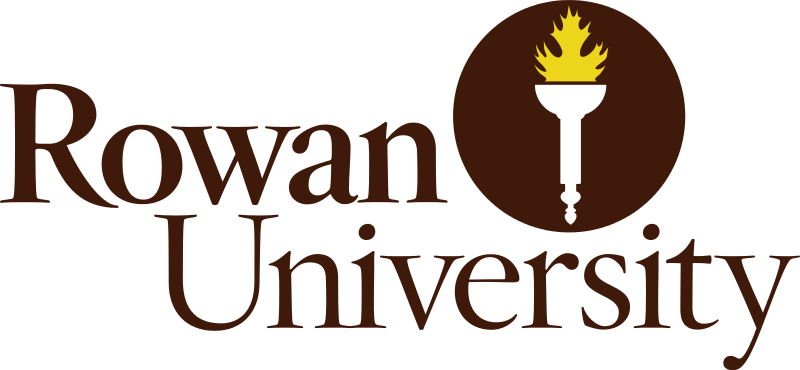
Along with showcasing the outstanding thought leaders in the education space, events like EdgeCon Autumn 2024 provide a collaborative platform for engaging discussions about the future of higher education and how the community can work together to drive positive change and find solutions that can benefit all organizations.
Thank you to EdgeCon Autumn Sponsors
EdgeCon Autumn was made possible, in large part, to our participating vendors and their sponsorship and support of this event. With a wide array of products, services, and solutions to support your institutional ecosystems, we want to thank our sponsors for their invaluable contributions and commitment to enhancing the experience for all attendees. Visit the Sponsor Thank You Page here »
Platinum Sponsor

VIP Reception Sponsors

VIP Dinner Sponsors
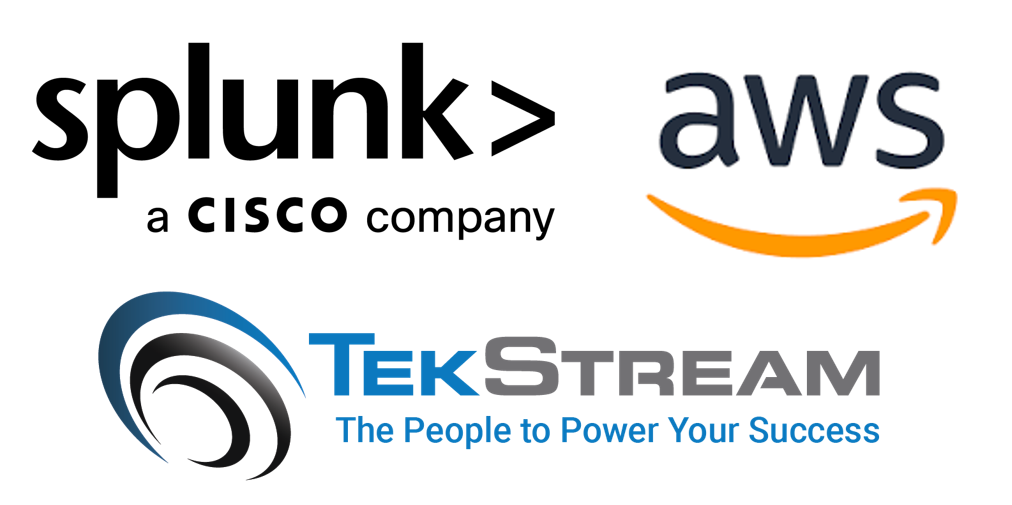
Exhibitor Sponsors


